
Travel Vaccines and Advice for Thailand

Thailand is a popular destination with its tropical climate, food, culture and beaches.
Thai is the official language of Thailand. But, other smaller languages spoken in rural areas. The primary religion of Thailand is Buddhism and is prevalent in many aspects of culture throughout Thailand. Islam is also practiced in Southern provinces.
Bangkok, Thailand’s capital city, is also the largest city in the country. Bangkok is highly populated with congested streets, modern buildings and temples. It is most known for its nightlife.
Thailand’s other major cities include Ayutthaya, Chiang Mai, and Chiang Rai.
On This Page: Do I Need Vaccines for Thailand? Other Ways to Stay Healthy in Thailand Do I Need a Visa or Passport for Thailand? What Is the Climate Like in Thailand? How Safe Is Thailand? Temples in Thailand What Should I Take to Thailand? U.S. Embassy in Thailand
Do I Need Vaccines for Thailand?
Yes, some vaccines are recommended or required for Thailand. The CDC and WHO recommend the following vaccinations for Thailand: typhoid , cholera , hepatitis A , polio , yellow fever , Japanese encephalitis , chikungunya , rabies , hepatitis B , influenza , COVID-19 , pneumonia , meningitis , chickenpox , shingles , Tdap (tetanus, diphtheria and pertussis) and measles, mumps and rubella (MMR) .
See the bullets below to learn more about some of these key immunizations:
- Typhoid – Food & Water – Shot lasts 2 years. Oral vaccine lasts 5 years, must be able to swallow pills. Oral doses must be kept in refrigerator.
- Cholera – Food & Water – Cholera is rare, but present in Thailand. Vaccination is recommended for travelers at increased risk or visiting areas with active transmission.
- Hepatitis A – Food & Water – Recommended for most travelers.
- Polio – Food & Water – Due to an increase in cases globally, an additional adult booster is recommended for most travelers to any destination.
- Yellow Fever – Mosquito – Required if traveling from a country with risk of yellow fever transmission.
- Japanese Encephalitis – Mosquito – Recommended depending on itinerary and activities. Recommended for extended travel, recurrent travelers and travel to rural areas. Present throughout country, especially northern regions. Most cases from May to October.
- Chikungunya – Mosquito – Thailand is a higher risk region. Vaccination is recommended.
- Rabies – Saliva of Infected Animals – High risk country. Vaccine recommended for long-term travelers and those who may come in contact with animals.
- Hepatitis B – Blood & Body Fluids – Recommended for travelers to most regions.
- Influenza – Airborne – Vaccine components change annually.
- COVID-19 – Airborne – Recommended for travel to all regions, both foreign and domestic.
- Pneumonia – Airborne – Two vaccines given separately. All 65+ or immunocompromised should receive both.
- Meningitis – Direct Contact & Airborne – Given to anyone unvaccinated or at an increased risk, especially students.
- Chickenpox – Direct Contact & Airborne – Given to those unvaccinated that did not have chickenpox.
- Shingles – Direct Contact – Vaccine can still be given if you have had shingles.
- Polio – Food & Water – Considered a routine vaccination for most travel itineraries. Single adult booster recommended.
- TDAP (Tetanus, Diphtheria & Pertussis) – Wounds & Airborne – Only one adult booster of pertussis required.
- Measles Mumps Rubella (MMR) – Various Vectors – Given to anyone unvaccinated and/or born after 1957. One time adult booster recommended.
See the table below for more information:
Specific Vaccine Information
- Typhoid – Typhoid, caused by Salmonella Typhi, spreads via contaminated food and water, especially in areas with poor sanitation. Protect yourself by practicing good hygiene and safe food habits. Vaccination can significantly reduce the risk of typhoid infection, especially when traveling to endemic areas.
- Hepatitis A – Be sure to protect yourself from hepatitis A, a contagious liver infection caused by HAV, through vaccination. The virus spreads through contaminated food, water, and close contact. Along with vaccination, maintaining proper hygiene and avoiding undercooked shellfish are essential for prevention.
- Japanese Encephalitis – Japanese encephalitis is a mosquito-spread viral disease that affects the central nervous system. Prevention is achieved through protective attire and vaccination.
- Chikungunya – Chikungunya, a mosquito-borne virus, can be prevented by avoiding mosquito bites and reducing breeding sites. The chikungunya vaccine provides the best protection.
- Rabies – Rabies is a deadly viral illness transmitted mainly through animal bites. Vaccination is pivotal, with pre-exposure and post-exposure options available to protect against this potentially fatal disease.
- Hepatitis B – The hepatitis B virus leads to liver infection through contact with infected fluids. The most effective safeguard is the hepatitis B vaccine, administered in a series of shots that stimulate the body to produce antibodies, providing long-term immunity. It is crucial for infants and those at an increased risk of exposure.
- Measles, Mumps, Rubella (MMR) – Measles, mumps, and rubella are viral infections that can spread through close contact and respiratory droplets. Vaccination is the most effective way to halt their transmission. The MMR vaccine, given in two doses, strengthens immunity, reducing the chances of contracting and spreading these diseases.
Malaria in Thailand
Malaria in Thailand is primarily found in border provinces near Myanmar, Cambodia, Laos and Malaysia. Rare cases occur in other regions. Chloroquine resistance is present in the country. Atovaquone, doxycycline, mefloquine and tafenoquine are suggested as antimalarials if traveling to the region. Consult with a travel health specialist on which antimalarial will best fit your needs.
Japanese encephalitis vaccines are mandatory for those living in rural areas, hiking or camping. Those that plan to stay longer than a month should consider getting vaccinated.
Various mosquito-borne diseases are present in Thailand. Malaria poses a threat to travelers to some regions of the country. Make sure you are protected with antimalarials.
Medical treatment is adequate and common in urban areas. Healthcare is also available in rural areas, though the health care providers may not speak English.
To find out more about these vaccines, see our vaccinations page . Ready to travel safely? Book your appointment either call or start booking online now .
Other Ways to Stay Healthy in Thailand
Prevent bug bites in thailand.
Safeguard against bug bites by dressing appropriately and using EPA-registered repellents with DEET, picaridin, or OLE. If bitten, cleanse the area, refrain from scratching, and mitigate discomfort with OTC treatments. Seek medical aid for serious reactions.
Food and Water Safety in Thailand
When traveling, ensure food safety by adhering to CDC recommendations, which include eating fully cooked foods, avoiding raw seafood, and selecting reputable dining places. Safely drink bottled beverages, avoiding ice in uncertain water sources, and consume alcohol in moderation. Prevent travelers’ diarrhea through hand hygiene and avoiding street food in unsanitary areas.
Altitude Sickness in Thailand
Altitude sickness, characterized by symptoms like headache and nausea stemming from oxygen deprivation at high elevations, can be prevented through gradual ascent, hydration, and medication like acetazolamide. Should AMS symptoms arise, immediate descent to lower altitudes, rest and seek medical attention.
Infections To Be Aware of in Thailand
- Avian/Bird Flu – Avian flu, also known as bird flu, is a contagious virus that affects birds and can spread to humans. Preventing it involves vaccination of poultry, strict biosecurity on farms, safe handling and cooking of poultry, surveillance for outbreaks, and raising public awareness.
- Dengue – Dengue fever is a mosquito-borne illness with symptoms ranging from mild to severe, including high fever and pain. The CDC emphasizes prevention through avoiding mosquito bites by using repellents and removing standing water. Treatment focuses on symptom relief and hydration, avoiding certain pain relievers that can worsen bleeding risks.
- Leishmaniasis – Leishmaniasis is transmitted by sand flies’ bites. To prevent its spread, individuals should use insect repellents, wear long-sleeved clothing and limit outdoor activities during sand fly activity periods. Eliminating breeding sites and early diagnosis are crucial for effective prevention.
- Zika – Zika, a mosquito-borne virus, can cause mild to severe symptoms and poses significant risks during pregnancy. Prevention strategies include using insect repellent, safe sex practices, and avoiding travel to affected areas.
Do I Need a Visa or Passport for Thailand?
U.S. citizens staying in Thailand for 30 days or less do not need a visa. But, their passport must be valid for at least six months from the date of entry.
Sources: Embassy of Thailand and U.S. State Department
Always carry your passport and visa with you to avoid arrest in Thailand.
What Is the Climate Like in Thailand?
Thailand is a country with a tropical climate that is hot and humid throughout the year. The temperature ranges from 25 to 35 degrees Celsius during the day. The weather can be different depending on where you are in Thailand. Here are some popular tourist destinations:
- Bangkok : Bangkok is hot and humid all year round. It rains a lot, especially between May and October.
- Phuket : Phuket is a tropical place. It can rain a lot from May to October. The temperature is usually between 75 and 90 degrees.
- Chiang Mai : Chiang Mai has a tropical climate with three different seasons: cool, hot, and rainy. The cool season runs from November to February, the hot season from March to May, and the rainy season from June to October.
- Pattaya : Pattaya is hot and humid all year round. It rains a lot, especially between May and October.
- Koh Samui : Koh Samui is an island that has two different seasons: dry and rainy. The dry season runs from December to April, and the rainy season from May to November.
Remember that weather can change, so always check the forecast before you travel.
How Safe Is Thailand?
In the past few years, there have been periodic terrorist attacks at popular tourist attractions in Thailand,. This remains a high-concern today. There is an ongoing risk of terrorist attacks in Thailand.
The National Council for Peace and Order (NCPO) has placed strict restrictions on media and have banned political gatherings. Tourists may be detained by the military for openly criticizing the NCPO.
Pick-pocketing is common in Thailand as is sexual violence in bars and isolated areas.
Do not use your passport as collateral. Many rental places are scams.
In Southern Thailand (Yala, Pattani, Narathiwat, and Songkhla), martial law is still prevalent. Tourists are cautioned against traveling to these areas.
Temples in Thailand
Avoid mosquitoes and other bugs, insect-borne disease are a threat throughout the world., keep the bugs away with passport health’s repellent options .
There are over 40,000 temples in Thailand, making them popular tourist attractions. These temples range in age and architecture and many are still in use today.
Wat Pho, located in Bangkok, is one of the most popular due to its size and attractions within. It is one of the largest complexes in the country, holding many buildings. Wat Pho houses the largest reclining Buddha and largest collection of Buddha images.
The site is also headquarters for the teaching and preservation of Thai medicine. There, tourists can find two massage schools and pavilions.
You must take off your shoes to enter and you purchase coins to put into bowls for good luck. All the money goes towards renovating and up-keeping the site.
What Should I Take to Thailand?
Thailand is a hot and humid country, it’s important to pack lightweight and comfortable clothing. You should bring comfortable shoes for walking, sun protection like sunscreen, hats, and sunglasses to avoid the strong sun rays. Mosquitoes are common in Thailand, so it’s important to bring insect repellent to avoid bites.
Thailand uses different types of electrical outlets, so it’s recommended to bring a universal adapter. It’s also recommended to pack any prescription medication and over-the-counter medications such as pain relievers, anti-diarrhea medication, and motion sickness medication.
Thailand is a cash-based society, so it’s important to bring cash and credit cards. If you plan to visit the beaches or go swimming, don’t forget to pack swimwear and a beach towel. When visiting temples or other religious sites, make sure to dress respectfully, covering your shoulders and knees, and avoid wearing revealing clothing in public places.
Don’t forget to bring your passport, visa (if required), travel insurance, and any other important travel documents.
U.S. Embassy in Thailand
All Americans visiting Tunisia should register online with the U.S. Department of State before departure. This will inform the office of your travel plans within the country and will allow them to reach out in the case of an emergency or evacuation.
Once in Thailand, the information for the U.S. Embassy is:
U.S. Embassy Bangkok 95 Wireless Road Bangkok 10330 Thailand Telephone: + (66) (2) 205-4049, 02-205-4049 (within Thailand) Emergency After-Hours Telephone: +(66) (2) 205-4000, 02-205-4000 (within Thailand) Fax: +(66) (2) 205-4103, 02-205-4103 (within Thailand) Email: [email protected]
If you have any questions about traveling to Thailand or are wondering what shots you may need for your trip, schedule an appointment with your local Passport Health travel medicine clinic. Call us at or book online now! and protect yourself today.
Customer Reviews
Passport health – travel vaccines for thailand.

- Records Requests
- Passport Health App
- Privacy Center
- Online Store

This website is managed by Siam Legal International - a law firm in Thailand

Latest Thailand Entry Requirements
After two years of dealing with Covid, international travel is returning to normal. To help welcome visitors back to the Land of Smiles, the Thai government lifted its final restrictions on July 1st, 2022.
From July 1st, the following changes have been implemented for all international travelers.
- Foreigners do not need to show proof of Covid Insurance.
- All mandatory hotel quarantine has been removed.
- Thailand Pass is no longer required for foreign travelers entering Thailand.
- Vaccinated travelers do not need to provide proof of vaccination to Thai authorities before arriving.
- Unvaccinated travelers (including children traveling with unvaccinated parents) will need to complete an RT-PCR or Professional Antigen Test (Pro-ATK) 72 hours before departing for Thailand. Proof does not need to be uploaded before traveling.
- Airlines and Thai Immigration will do random checks to confirm travelers meet Covid prevention requirements (vaccination or Covid test).
Below is a full list of what international travelers need before entering Thailand.
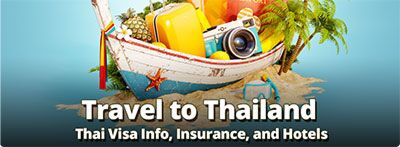
Required Documents for Travel to Thailand
Please have the following documents ready.
- Passport with at least six month validity
- Visa or visa exemption qualification
- Buy Thailand Travel Insurance
- Boarding pass to be presented at Passport Control
- Hotel booking confirmation if asked by Immigration Officer
- Note: Vaccination record no longer required
Incorrect documents will delay the entry screening by rules from the Thai immigration bureau and its Thai immigration officials.
Buy Your Insurance Now
Passport Validity / Visas
The first thing to check before planning to travel to Thailand is the validity of your passport. International travel requires that your passport is not expiring within six months of your travel date. If you have less than six months left on your passport, you cannot enter Thailand.
If you are planning to travel in the future, check your passport early so you know if you need to apply for a new one or not. It is best to check with your local embassy about how long it will take to receive your new passport. As people look to travel again, passport departments are swamped with new applications and this is causing a backlog in many countries.
There are several visas available to foreigners who are planning to visit Thailand. The visa you need will depend on where you are from, your purpose of travel, and how long you intend to stay.
Visa Exemption
A foreign visitor may enter Thailand under the Visa Exemption Program . Nationalities under the Visa Exemption Program may enter Thailand without a visa from a Thai Embassy or Consulate.
Upon arriving in Thailand, most nationalities who are part of the Visa Exemption Program may stay for up to 30 days. Certain nationalities can arrive as part of this program, but for a shorter time. It is best to check the country exemption list and confirm how long you can visit Thailand without needing to apply for a Visa.
Tourists arriving under visa exemption are eligible to extend their stay for up to a further 30 days by visiting a local Thai Immigration Office. The cost to extend is approximately 2000 baht.
There is often confusion about Visa Exemption and “Visa on Arrival”. Visa on Arrival is a 15-day visa for travelers from India, China, and 16 other countries. If you do not find your country on the Visa Exemption list, it is best to check the Visa on Arrival list.
There are some important things to note for Visa on Arrival:
- A passport must be valid for at least 30 days.
- The purpose of the visit is strictly tourist.
- A visitor must show an address in Thailand where they will be staying.
- A traveler must have a confirmed return flight.
- Must show proof of funds to the value of 10,000 baht per person or 20,000 baht for a family.
- A fee of 2000 baht is paid on arrival. The fee must be paid in cash and in Thai baht.
Tourist Visa and Special Tourist Visa (STV)
Foreigners may also apply for a Tourist Visa from a Thai embassy or consulate. There is the normal 60-day tourist visa that can be extended for additional 30 days, or the 90-day Special Tourist Visa (STV), which can be extended for 90 days twice at a local immigration office. There are certain requirements needed for the STV, but it allows a visitor to potentially stay in Thailand for 9 months. The Special Tourist Visa is currently scheduled to halt applications in September.
Contact your local Thai Embassy to verify what documents are needed to complete the process. When your visa is approved, the Embassy will place a sticker on your passport, so allow time for potential postage.
For those entering Thailand for a different purpose of stay, they need to obtain a Thai visa from their local Thai Embassy or Consulate prior to coming to Thailand.
Non-Immigrant Visa
Foreigners may apply for a wide range of long-term non-immigrant visas:
- Non-immigrant B Visa – for conducting business or employment
- Non-immigrant O visa – for visiting Thai spouse and family
- Non-immigrant ED visa – for students of recognized institutions in Thailand and their Parents or Legal guardian
- Non-immigrant O retirement visa – for those who wish to retire in Thailand
- Non-immigrant OA and OX visa – for those who wish to obtain a Thailand retirement visa for a long stay (it differs from type O visa)
The above visas can be organized at a local Thai Embassy or Consulate. The paperwork can be quite involved, but there are companies that can help.
Siam Legal International is a reputable company in Thailand that has offered visa assistance to foreign visitors for years. They are well versed in Thai immigration policies and processes. If you would like to streamline your long-term stay in Thailand, it is worth contacting them.
Thai Elite Visa
If you wish to make Thailand easily accessible for many years to come or are perhaps thinking of relocating permanently, it is worth having a look at the Thai Elite Visa.
The Thai Elite Visa allows foreign citizens to live in Thailand for 5, 10, or even 20 years. Thai Elite members do not need to worry about some of the eligibility criteria that are needed when applying for other long-term visas.
The Thai Elite visa is an exclusive visa that offers a host of benefits to holders. If you want to enjoy “Thai life” for the long term, you can read more about the Thai Elite Visa .

Proof of Vaccine or Testing
How a visitor enters Thailand will still depend on their vaccination status.
Vaccinated Travelers
Vaccinated travelers do not need to provide proof of vaccination to Thai authorities before arriving. A vaccinated traveler will need to have a copy of their vaccination certificate either printed or on a digital device and be able to present it if asked.
Thailand does not require visitors to have had a third booster shot. 2 shots (1 shot for Jansen) is considered fully vaccinated and accepted.
Unvaccinated Travelers
Unvaccinated travelers will need to complete an RT-PCR test or Professional Antigen Test (Pro-ATK) within 72 hours before boarding a flight in their departure country. They will need to have a copy of the test result and be able to present it if asked.
The RT-PCR and Pro-ATK test must be completed by a medical professional and a test report received. The home ATK (RAT) self-test is not acceptable for entering Thailand.
Vaccination and Testing for Children
The testing requirement for children under 18 depends on the vaccination status of their parents. Children traveling with vaccinated parents do not need to complete any RT-PCR or Pro-ATK test before entering Thailand. Children traveling with unvaccinated parents will need to complete the same test as their parents within 72 hours of departing their home country.
It is important to note that many airlines are still asking for proof of vaccination or a Covid test before boarding flights. If you cannot produce one of these documents, you might not board the flight.
Though foreigners no longer need to provide evidence of testing or vaccination prior to arriving in Thailand, they are still required. Thai authorities are conducting random checks of international passengers and if a vaccination certificate or test result cannot be shown, a visitor will not be allowed to enter Thailand.
Insurance has become a dirty word during Covid. Seasoned travelers have always understood the importance of having comprehensive Travel Insurance when traveling abroad. Travel insurance protected travelers from unexpected incidents like:
- Medical emergencies
- Personal injury & accidents
- Missed or delayed flights
- Damage to belongings
- Lost luggage
It was one of those things that people hoped they would never need but regretted not having when needed.
During the Pandemic, proof of insurance became mandatory when visiting countries like Thailand. Over time, people stopped referring to insurance as “Travel Insurance” and always referred to it as “Covid Insurance”. Because you had to have it, it was another hoop to jump through.
The good news is that you no longer need to provide proof of “Covid Insurance” to enter Thailand. But it is recommended because all the things listed above can still happen, and Covid has not disappeared completely.
Foreign visitors are not eligible for free medical care in Thailand if something should happen. Whether it be an accident or personal injury, if a visitor needs medical help, or has a canceled flight, they will need to cover any expenses themselves. Depending on the severity, this could be hundreds, if not thousands, of dollars.
Buying good Travel Insurance shouldn’t break the bank. Protecting yourself is cheaper than medical bills, new flights, and replacing lost luggage.
You can buy Travel Insurance from many companies. But if you are looking for coverage that is designed for Thailand, is trusted by Thai authorities and medical institutions, and offers a helpline with people who speak the local language and know the country’s procedures, it is worth checking out AXA Thailand .
Their policies are well priced, straightforward, offer many benefits to its customers, and can be approved in minutes.
Get your travel insurance here: https://u.axa.co.th/Sawasdee_Siamlegal

Hotel and Proof of Address Updates
Previously, a foreign visitor would complete an Arrival Card (TM6) before entering Thailand. This requirement has been temporarily removed as part of a new initiative by the Thai government.
A visitor no longer needs to provide proof of a hotel booking before departing their country, but will still need to provide an address when passing through Passport Control in Thailand. This address can be a hotel, home, or friend’s address.
This is especially true with people arriving on a pre-approved visa from a Thai Embassy or Consulate.
From July 1, travelers are no longer required to book a SHA+ hotel and undergo an RT-PCR test on arrival. Most hotels have removed their SHA+ quarantine packages, but you will still see the SHA+ badge displayed on hotels.
It is recommended to browse hotels in Thailand on Agoda.com before arriving as it is easier to organize transport to your first night’s rest if pre-booked.

Thailand Pass
From July 1st, 2022, foreign travelers no longer need to apply for a Thailand Pass before entering Thailand. The system is still in place but is now a platform where visitors can notify the Thai authorities and medical facilities if they are diagnosed positive for Covid during their stay.
If you need to access the Thailand Pass system while in Thailand, please visit https://tp.consular.go.th/ and register by filling in your personal details on the Thailand Pass registration page.
International Arrivals
Travelers do not need to provide any proof of flights before leaving their home country.
There is a lot of discussion about whether a return flight needs to be booked when entering Thailand. Technically, all visitors should have a return flight booked. However, you will not always be asked to present evidence of a return flight.
If a visitor is entering Thailand with a pre-approved visa, or Visa on Arrival, they will often be asked to present details of their exit flight. Sometimes a visitor did not have a return flight and had to book a flight on the spot before being processed through Passport Control. To avoid this, it is best to book an exit flight that can be changed. You can always change your plans once in Thailand.
Domestic flights
There are no longer any restrictions on domestic flights and travel. When entering Thailand at an international terminal, a traveler is free to transit to a domestic flight right away. “Sealed” flights have been removed.
Domestic airlines will not always ask for proof, but it is best to have your vaccination certificate or Covid test result on hand in case you are asked to show it.
Siam Legal has received reports from potential clients that some hospitals are creating difficulties for them until full payment is made for their medical expenses. Also, foreigners have allegedly been threatened with lawsuits for not settling their medical bills before being discharged. Using out-of-country policies can be problematic. We recommend using insurance providers headquartered inside Thailand with a proper cover to avoid any undesirable outcomes.
Siam Legal International, a premier law firm in Thailand, recommends purchasing the proper insurance and so endorses AXA Insurance for your travel to Thailand insurance needs.
HERE ARE SOME IMPORTANT POINTS YOU NEED TO KNOW BEFORE PURCHASING TRAVEL INSURANCE
- Please review the details of any insurance before purchasing to understand if the policy has adequate cover. Cheap policies with inadequate levels of cover can lead to significant personal liability, and scenarios where policy holders incur hundreds of thousands of baht in out-of-pocket medical expenses have been reported. There are significant financial risks to being underinsured during your stay in Thailand.
- These policies do not cover medical costs from accidents (like motorcycle accidents) or common unexpected illnesses (common fever or food poisoning). Best to pay a few baht more for the peace of mind that comes from having proper coverage.
- AXA covers medical expenses (outpatient and inpatient) for accidents and illnesses, including COVID-19. Other insurance coverage might not.
- AXA also covers telemedicine and teleconsultation, which may be required during the quarantine period of any traveler.
Thai hospital staff are familiar with AXA cover, which should prevent any inconvenience during hospital admission or medical treatment from your hotel room. AXA Thailand also offers 24/7 local support during your stay in Thailand.
You can buy your Thailand Travel insurance today at:
https://u.axa.co.th/Sawasdee_Siamlegal
List of approved covid-19 vaccines.
As of December 1, the MoPH has approved the following vaccines:
- Pfizer–BioNTech or Comirnaty
- Janssen or Janssen/Ad26.COV2.S
- AstraZeneca or Covishield
- Sinopharm or COVILO
- CoronaVac or SinoVac
- Sputnik Lite
How to Obtain Travel Insurance
Though COVID-19 insurance is no longer mandatory for entry to Thailand, it is recommended to have comprehensive Travel insurance for the duration of your stay. Good travel insurance covers not only medical expenses relating to Covid but also accident cover, personal damage, loss of possessions, and missed or delayed flights.
It is best to purchase insurance before you travel. The easiest way to buy your policy is online through a reputable insurance provider. The insurance company will provide you with the all-important certificate of cover that you can present to authorities or medical professionals if you need to make a claim.
You may also be asked to present this certificate to the airline before they will allow you to onboard. It’s quick and easy to do online. You can choose your length of policy from 7, 15, 30, 60 days, and 180 days. Just make sure that the policy covers your entire period of stay in Thailand as foreigners are not eligible for free medical care in Thailand and insurance companies will not cover claims for existing conditions.
You may purchase AXA COVID-19 travel insurance within a few minutes. Check them below.
You can buy budget insurance here: https://www.siam-legal.com/axa-insurance

How to Open a Bank Account in Thailand
Siam Legal offers and provides aid for a smooth and hassle-free way to open up a Thai bank account.
- You will receive help in opening a savings/current bank account
- You will receive a Bankbook and a debit/ATM card
- Online Banking (Thai mobile number is required)
Requirements
- Guarantee letter (to be provided by Siam Legal)
- The applicant may book our service online.
- Our staff will prepare the application and necessary documents for the bank and arrange an appointment with the applicant.
- The applicant will collect the application form and documents from the Siam Legal Bangkok office and proceed to the specific bank branch. Opening the account at the bank takes 1 to 2 hours.
Service Fee
Our service fee is 150 USD for opening a Thai savings account in Bangkok.
City Travel Guide
- How to Travel to Bangkok
- How to Travel to Phuket
- How to Travel to Pattaya
- How to Travel to Chiang Mai
- How to Travel to Samui
- How to Travel to Hua Hin
Useful Links
- Best COVID-19 Insurance for Foreigners
- Thailand Elite Visa – long term visa option for Thailand
- How to Travel to Thailand in 2022 – Your Ultimate Guide
Related Posts
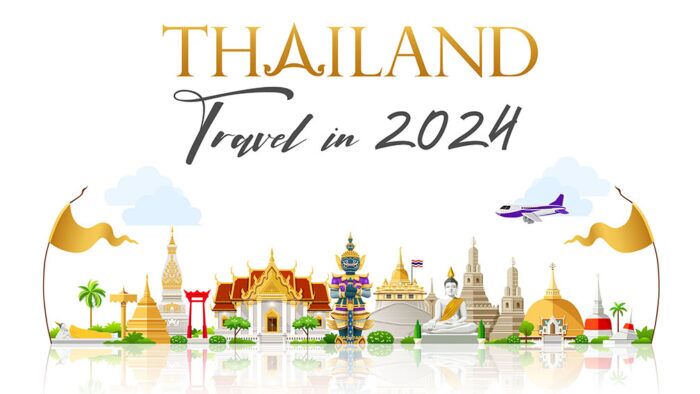
How to Travel to Thailand in 2024

Best Places to Retire in Thailand for Couples

How to Retire in Thailand for Couples
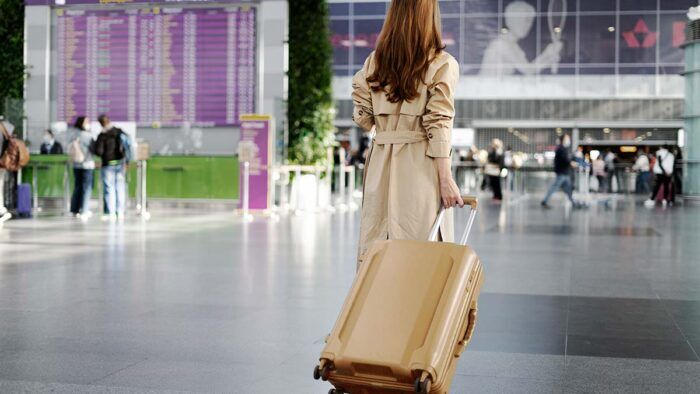
Thailand Travel Restrictions 2023
Security Alert May 17, 2024
Worldwide caution.
- Travel Advisories |
- Contact Us |
- MyTravelGov |
Find U.S. Embassies & Consulates
Travel.state.gov, congressional liaison, special issuance agency, u.s. passports, international travel, intercountry adoption, international parental child abduction, records and authentications, popular links, travel advisories, mytravelgov, stay connected, legal resources, legal information, info for u.s. law enforcement, replace or certify documents.
Before You Go
Learn About Your Destination
While Abroad
Emergencies
Share this page:
Travel Advisory July 24, 2023
Thailand - level 1: exercise normal precautions.
Reissued with obsolete COVID-19 page links removed.
Exercise normal precautions in Thailand. Some areas have increased risk. Read the entire Travel Advisory.
Reconsider travel to:
- Yala, Pattani, Narathiwat, and Songkhla provinces due to civil unrest associated with ongoing insurgent activities.
Read the country information page for additional information on travel to Thailand.
If you decide to travel to Thailand:
- Enroll in the Smart Traveler Enrollment Program (STEP) to receive Alerts and make it easier to locate you in an emergency.
- Follow the Department of State on Facebook and Twitter .
- Review the Country Security Report for Thailand.
- Have evacuation plans that do not rely on U.S. government assistance.
- Visit the CDC page for the latest Travel Health Information related to your travel.
- Prepare a contingency plan for emergency situations. Review the Traveler’s Checklist .
Yala, Pattani, Narathiwat, and Songkhla Provinces – Level 3: Reconsider Travel
Periodic violence directed mostly at Thai government interests by a domestic insurgency continues to affect security in the southernmost provinces of Yala, Pattani, Narathiwat, and Songkhla. In Songkhla, the insurgency is most active in the districts of Chana, Thepha, Nathawat, and Saba Yoi. U.S. citizens are at risk of death or injury due to the possibility of indiscriminate attacks in public places.
The U.S. government has limited ability to provide emergency services to U.S. citizens in these provinces as U.S government employees must obtain special authorization to travel to these provinces.
Visit our website for Travel to High-Risk Areas .
Embassy Messages
View Alerts and Messages Archive
Quick Facts
6 months from date of entry required
One page is required per entry stamp; please note endorsement pages are not considered blank passport page
No, if your stay is less than 60 days
Yellow fever may be required if arriving from certain countries with yellow fever
Embassies and Consulates
U.S. Embassy Bangkok 95 Wireless Road Bangkok 10330 Thailand Telephone: + (66) (2) 205-4049, 02-205-4049 (within Thailand) Emergency After-Hours Telephone: +(66) (2) 205-4000, 02-205-4000 (within Thailand) Fax: +(66) (2) 205-4103, 02-205-4103 (within Thailand) Email: [email protected]
CONSULATE
U.S. Consulate General Chiang Mai 387 Witchayanond Road Chiang Mai 50300 Thailand Telephone: +(66) (53) 107-777, 053-107-777 (within Thailand) Emergency After-Hours Telephone: +(66) 81-881-1878, 081-881-1878 (within Thailand) Fax: +(66) (53) 252-633, 053-252-633 (within Thailand) Email: [email protected]
Destination Description
Learn about the U.S. relationship to countries around the world.
Entry, Exit and Visa Requirements
Visit the Royal Thai Embassy website for the most current visa information.
- U.S. citizen tourists entering Thailand for fewer than 60 days do not require a visa.
- We strongly recommend that your passport be valid for at least six months beyond the date of your arrival in Thailand to avoid possible denied entry.
- Thai immigration officials or airline staff may ask for your onward/return ticket.
- Business travelers, U.S. government employees travelling on official business, teachers, retirees, and those planning to stay longer than 30 days should check with the Royal Thai Embassy about visa requirements .
- If you overstay your visa, you will be fined. Depending on the length of overstay, you may also be arrested, detained, deported at your own expense, and banned from re-entering Thailand.
We strongly recommend you carry a copy of your U.S. passport identification page and current Thai visa to help avoid detention by the Thai immigration police.
Thailand’s entry/exit information is subject to change without notice. For the most current information, please see The Royal Thai Police Immigration Bureau .
You can find detailed information on vaccinations and other health precautions on the CDC website .
HIV/AIDS Restrictions: Some HIV/AIDS entry restrictions exist for visitors to and foreign residents of Thailand. However, these restrictions are generally not enforced. Please verify this information with the Royal Thai Embassy before you travel. COVID-19 Requirements: There are no COVID-related entry requirements for U.S. citizens.
Find information on dual nationality , prevention of international child abduction and customs regulations on our websites.
Safety and Security
Terrorism: Terrorist groups and those inspired by such organizations are intent on attacking U.S. citizens abroad. Terrorists are increasingly using less sophisticated methods of attack – including knives, firearms, and vehicles – to more effectively target crowds. Frequently, their aim is unprotected or vulnerable targets, such as:
- High-profile public events (sporting contests, political rallies, demonstrations, holiday events, celebratory gatherings, etc.)
- Hotels, clubs, and restaurants frequented by tourists
- Places of worship
- Shopping malls and markets
- Public transportation systems (including subways, buses, trains, and scheduled commercial flights)
For more information, see our Terrorism page.
Periodic acts of violence in Thailand remain a concern. In August 2019, several small explosions and related arson events occurred in various locations throughout Bangkok resulting in no deaths but some injuries and minor property damage. Several small-scale bombings occurred near some tourist locations in the far Southern provinces in August 2016 and December 2018. In August 2015, an explosion near the Erawan Shrine in downtown Bangkok killed at least 20 people and injured more than 100. The U.S. Department of State assesses there is a continued risk of terrorism in Southeast Asia, including in Thailand.
If a protest or demonstration is expected to pass near the U.S. Embassy or Consulate facilities, Embassy and Consulate entrances and functions may be restricted. The U.S. Embassy in Bangkok’s website , Facebook, and Twitter sites and the U.S. Consulate General in Chiang Mai’s website , Facebook , and Twitter sites post information about local events that may affect Embassy functions. Enroll in the Smart Traveler Enrollment Program ( STEP ) to receive security and safety messages.
Far Southern Thailand: Periodic violence directed mostly at Thai government interests by a domestic insurgency continues to affect security in the southernmost provinces of Yala, Pattani, Narathiwat, and Songkhla. U.S. citizens are at risk of death or injury due to the possibility of indiscriminate attacks in public places. Martial law is in force in this region.
The U.S. government has limited ability to provide emergency services to U.S. citizens in these provinces. Travel to this region by U.S government employees must be reviewed and approved in advance. For more information on terrorist threats against U.S. citizens worldwide and steps to take as a result of these threats, please see the Worldwide Caution .
- Crimes of opportunity, such as pick-pocketing, bag-snatching, and burglary, occur in Thailand.
- Violent crimes against foreigners are relatively rare. However, murders, rapes, and assaults against foreigners do occur.
- Sexually motivated violence, committed by either Thai citizens or foreigners, is most likely to occur after time spent at bars, clubs, and parties, on beaches, or in remote/isolated areas. The Thai police response will differ from an investigation in the United States; investigating officials have publicly discredited people who have reported being the victim of crimes . In addition to making a report at the police jurisdiction in which the crime occurred, we advise contacting the Embassy and engaging a local attorney if you are a victim of an assault.
- When traveling alone, exercise caution, stay near other travelers, and ensure friends or family know how to contact you.
- Taxi and “tuk-tuk” drivers may attempt to charge excessive fares or refuse passengers. You should either request the driver use the meter or agree on the fare beforehand.
- At the airport use only public transportation from the airport’s official pick-up area, cars from the limousine counters, or a car from your hotel.
- Rental scams do occur in Thailand. Many rental motorbike, jet ski, and car companies will hold your passport until you pay for real or fictitious damages. We advise against using your passport as collateral.
- Exorbitant bar tab scams occur in Thailand. Some bars and entertainment venues will charge exorbitant prices for drinks or unadvertised cover charges and threaten violence if you don’t pay.
- Other scams involving gems, city tours, entertainment venues, and credit cards are common, especially in tourist areas.
International Financial Scams: See the Department of State and the FBI pages for information.
Internet romance and financial scams are prevalent in Thailand. Scams are often initiated through Internet postings/profiles or by unsolicited emails and letters. Scammers almost always pose as U.S. citizens who have no one else to turn to for help. Common scams include:
- Romance/Online dating
- Money transfers
- Grandparent/Relative targeting
- Free Trip/Luggage
- Work permits/job offers
Victims of Crime: U.S. citizen victims of crime are encouraged to contact the U.S. Embassy or Consulate for assistance. Report crimes to the local police by calling 191 or the Tourist Police at 1155 and contact the U.S. Embassy at +66 (0) 2-205-4049 or Consulate at +(66) (53) 107-777. Remember that only local officials have the authority to investigate and to prosecute a crime.
Domestic Violence: U.S. citizen victims of domestic violence are encouraged to contact the U.S. Embassy or Consulate for assistance. Report crimes to the local police by calling 191 or the Tourist Police at 1155 and contact the U.S. Embassy at +66 (0) 2-205-4049 or Consulate at +(66) (53) 107-777. Remember that only local officials have the authority to investigate and to prosecute a crime.
See our webpage on help for U.S. victims of crime overseas .
- Help you find appropriate medical care
- Assist you in reporting a crime to the police
- Contact relatives or friends with your written consent
- Explain the local criminal justice process in general terms
- Provide a list of local attorneys
- Provide our information on victim’s compensation programs in the U.S.
- Provide an emergency loan for repatriation to the United States and/or limited medical support in cases of destitution
- Help you find accommodation and arrange flights home
- Replace a stolen or lost passport
Tourism: The tourism industry is unevenly regulated, and safety inspections for equipment and facilities do not commonly occur. Hazardous areas/activities are not always identified with appropriate signage, and staff may not be trained or certified either by the host government or by recognized authorities in the field. In the event of an injury, appropriate medical treatment is typically available only in/near major cities. First responders are generally unable to access areas outside of major cities and to provide urgent medical treatment. U.S. citizens are encouraged to purchase medical evacuation insurance. See our webpage for more information on insurance providers for overseas coverage .
Local Laws & Special Circumstances
Criminal Penalties: You are subject to local laws. If you violate local laws, even unknowingly, you may be expelled, arrested, or imprisoned. Individuals establishing a business or practicing a profession that requires additional permits or licensing should seek information from the competent local authorities, prior to practicing or operating a business.
Furthermore, some laws are also prosecutable in the United States, regardless of local law. For examples, see our website on crimes against minors abroad and the Department of Justice website.
Arrest Notification: If you are arrested or detained, ask police or prison officials to notify the U.S. Embassy immediately. See our webpage for further information.
Conditions at the Bangkok Immigration Detention Center (IDC): Conditions in immigration detention centers (IDCs) where authorities detain foreign nationals who violate immigration laws remain poor and most are overcrowded. IDCs, administered by the Immigration Police Bureau, which reports to the Royal Thai Police (RTP), are not subject to many of the regulations that govern the regular prison system. U.S. citizen detainees often complain of stark, austere living conditions, overcrowding, and unhealthy conditions. Personal security is poor. In addition, the main IDC in Bangkok does not dependably provide adequate medical or mental health care. In 2019, two U.S. citizens died while in custody at the Bangkok IDC. Deportations are self-funded and it may take up to two weeks for Thai authorities to process a case before deportation. Detainees must have funds to purchase a phone card and do not have access to the internet. Prior approval and a security escort are required to visit a Western Union or an ATM machine.
- Please see the Immigration Act B.E. 1979 for more information about Thai Immigration violations.
- Please see the Department of State’s Report on Human Rights Practices for Thailand for further information.
Lèse majesté (Royal Insult): Thais hold the monarchy in the highest regard. Making a critical or defamatory comment about the royal family is punishable by a prison sentence of up to 15 years per offense. As an example, purposely tearing Thai bank notes, which carry an image of the King, may be considered a lèse majesté offense.
- Prostitution is illegal in Thailand. Serious consequences include criminal conviction and imprisonment, particularly in the case of child prostitution.
- Commercial surrogacy is banned.
- Personal use of even non-lethal military equipment, such as protective vests and night vision scopes, is prohibited.
- Illegal drugs carry severe penalties. Expect long jail sentences under harsh conditions, heavy fines, or even execution for possessing, using, or trafficking in illegal drugs.
- Shoplifting can result in large fines and lengthy detention followed by deportation.
- Domestic Issues: Local police are reluctant to become involved in domestic issues. You may call the Family Services Emergency hotline by dialing 1300 from any Thai phone.
- Possessing counterfeit or pirated goods is a crime in Thailand. For more information see the intellectual property section of the U.S. Department of Justice website .
Customs may enforce strict regulations on Buddha images, firearms, bullets and/or bullet casings, bullet-proof vests, night vision devices and other para-military type equipment, explosives, drugs, radios, books, and recordings, which might be cultural property and/or considered harmful to the public interest.
Faith-Based Travelers: See the following webpages for details:
- Faith-Based Travel Information
- International Religious Freedom Report – see country reports
- Human Rights Report – see country reports
- Hajj Fact Sheet for Travelers
- Best Practices for Volunteering Abroad
LGBTI Travelers: There are no known legal restrictions on same-sex sexual relations or the organization of LGBTI events in Thailand. However, LGBTI groups report that in the case of sexual crimes, police tend to downplay sexual abuse claims from LGBTI victims.
See our LGBTI Travel Information page and section 6 of our Human Rights report for further details.
Travelers Who Require Accessibility Assistance. Sidewalks and street crossings are not suitable for travelers with mobility issues. Newly constructed buildings, facilities, and transportation equipment should be accessible by law for persons with mobility issues. However, enforcement of these provisions is not uniform.
Students: See our Students Abroad page and FBI travel tips .
Women Travelers: Some victims of sexual assault or domestic violence find that Thai authorities do not handle such cases with as much sensitivity or consideration for privacy as they would expect in the United States. See our travel tips for Women Travelers .
Ambulance services are:
- not present throughout the country or are unreliable in most areas except for Bangkok and other major cities.
- Injured or seriously ill travelers may prefer to take a taxi or private vehicle to the nearest major hospital rather than wait for an ambulance.
Medical treatment is generally adequate in Thailand’s urban areas. In Bangkok, Chiang Mai, Phuket, and Pattaya, good facilities exist for routine, long-term, and emergency health care. Basic medical care is available in rural areas, but English-speaking providers are rare.
Medical tourism is an established and rapidly growing industry. You should consult with your local physician before traveling and also refer to information on medical tourism from CDC.
We do not pay medical bills. Be aware that U.S. Medicare/Medicaid does not apply overseas. Most hospitals and doctors overseas do not accept U.S. health insurance.
Medical Insurance: Make sure your health insurance plan provides coverage overseas. Most care providers overseas only accept cash payments. See our webpage for more information on insurance providers for overseas coverage. Visit the U.S. Centers for Disease Control and Prevention for more information on type of insurance you should consider before you travel overseas.
We strongly recommend supplemental insurance to cover medical evacuation.
Medicine for personal use is allowed as long as the amount does not exceed a 30-day supply and you bring the medicine with you. Do not mail medicine to Thailand without first confirming it will be allowed into the country.
If traveling with prescription medication, check with Thailand Customs and the Thailand Food and Drug Administration to ensure the medication is legal in Thailand. Always, carry your prescription medication in original packaging with your doctor’s prescription.
The following diseases are present:
- Chikungunya
- Japanese encephalitis
- Tuberculosis:
- Hepatitis A and B
- Melioidosis
Vaccinations: Be up-to-date on all vaccinations recommended by the U.S. Centers for Disease Control and Prevention.
Further health information:
- World Health Organization
- U.S. Centers for Disease Control and Prevention (CDC)
Air Quality: The air quality in Thailand varies considerably and fluctuates with the seasons, but seasonal smog is a problem. In recent years the air quality in Bangkok, Chiang Mai, Khon Kaen, Lampang, Nan, and Samut Sakhon have exceeded Thai and U.S. government daily standards for fine particulate matter (PM 2.5) for a portion of the year. In Chiang Mai and other northern provinces, annual agricultural burning, approximately February through late April, and forest fires cause days with unhealthy to hazardous air quality based on the U.S. index. In Bangkok environs, airborne dust and auto pollutants are prevalent in the cooler, dry period (December-February). Anyone who travels where pollution levels are high is at risk. People at the greatest risk from air pollution exposure include:
- Infants, children, and teens
- People over 65 years of age
- People with lung disease such as asthma and chronic obstructive pulmonary disease (COPD), which includes chronic bronchitis and emphysema;
- People with heart disease
- People who work or are active outdoors
For Bangkok and Chiang Mai, U.S. Mission Thailand is reporting the U.S. EPA’s Air Quality Index (AQI) calculated from PM2.5 data captured by monitors owned and maintained by the Royal Thai Government. The information and advice on health protection measures to take is available
Visit AirNow Department of State for information on air quality at U.S. Embassies and Consulates.
The U.S. Embassy maintains a list of doctors and hospitals . We do not endorse or recommend any specific medical provider or clinic.
Health facilities in general:
- Adequate health facilities are available in Bangkok and other major cities but health care in rural areas may be below U.S. standards.
- Hospitals and doctors require payment “up front” prior to service or admission. Credit card payment is not always available.
- Medical staff at public hospitals may speak little or no English.
- Patients bear all costs for transfer to or between hospitals.
- Psychological and psychiatric services are limited, even in the larger cities, with hospital-based care only available through government institutions.
Medical Tourism and Elective Surgery:
- Medical tourism is a rapidly growing industry. People seeking health care overseas should understand that medical systems operate differently from those in the United States and are not subject to the same rules and regulations. Anyone interested in traveling for medical purposes should consult with their local physician before traveling and visit the U.S. Centers for Disease Control and Prevention website for more information on Medical Tourism.
- We strongly recommend supplemental insurance to cover medical evacuation in the event of unforeseen medical complications.
- Your legal options in case of malpractice are very limited in Thailand.
- Although Thailand has many elective/cosmetic surgery facilities that are on par with those found in the United States, the quality of care varies widely. If you plan to undergo surgery in Thailand, make sure that emergency medical facilities are available and professionals are accredited and qualified.
Pharmaceuticals:
- Exercise caution when purchasing medication overseas. Pharmaceuticals, both over the counter and requiring prescription in the United States, are often readily available for purchase with little controls. Counterfeit medication is common and may prove to be ineffective, the wrong strength, or contain dangerous ingredients. Medication should be purchased in consultation with a medical professional and from reputable establishments.
- U.S. Customs and Border Protection and the Food and Drug Administration are responsible for rules governing the transport of medication back to the United States. Medication purchased abroad must meet their requirements to be legally brought back into the United States. Medication should be for personal use and must be approved for usage in the United States. Please visit the U.S. Customs and Border Protection and the Food and Drug Administration websites for more information.
Assisted Reproductive Technology and Surrogacy:
- If you are considering traveling to Thailand to have a child through use of assisted reproductive technology (ART) or surrogacy, please see our ART and Surrogacy Abroad page .
- Surrogacy is illegal for foreigners in Thailand, subject to complex local regulation. For additional information, visit the Government of Thailand’s website for information on foreigner surrogacy.
- If you decide to pursue parenthood in Thailand via assisted reproductive technology (ART) with a gestational mother, be prepared for long and unexpected delays in documenting your child’s citizenship. Be aware that individuals who attempt to circumvent local law risk criminal prosecution.
Water Quality:
- In many areas, tap water is not potable. Bottled water and beverages are generally safe, although you should be aware that many restaurants and hotels serve tap water unless bottled water is specifically requested. Be aware that ice for drinks may be made using tap water.
Adventure Travel:
- Visit the U.S. Centers for Disease Control and Prevention website for more information about Adventure Travel .
COVID-19 Testing: For the most current list of COVID-19 testing locations in Thailand approved by the Ministry of Public Health, please visit: http://service.dmsc.moph.go.th/labscovid19 . Testing is paid for by U.S. citizens.
The Ministry of Public Health provides a list of 44 laboratories approved to conduct COVID-19 testing found here .
Please Note : Same-day Covid-19 testing is available at most private hospitals throughout Thailand. Please reference this list of testing locations and contact the provider directly to inquire about COVID-19 testing options, scheduling, cost, and other information.
COVID-19 Vaccines: The COVID-19 vaccine is available for U.S. citizens to receive in Thailand. According to Thai authorities, both private and public hospitals are providing COVID-19 vaccines. More information on a list of hospitals in Thailand is available here .
The Bang Rak Vaccination and Health Center, the Institute of Dermatology, and the Bamrasnaradura Infectious Diseases Institute are currently providing free bivalent vaccines to non-Thai citizens on a walk-in basis.
Visit the FDA's website to learn more about FDA-approved vaccines in the United States.
Travel and Transportation
Road Conditions and Safety:
- Traffic accidents are common in Thailand. According to the World Health Organization , in 2018, Thailand had one of the world’s highest traffic-related fatality rates. Bangkok and some parts of Chiang Mai have heavy traffic.
- Reckless driving: Speeding, reckless passing, and failure to obey other traffic laws are common in all regions of Thailand. Traffic moves on the left. Some drivers move illegally against the traffic. Scooters and motorbikes commonly drive on the sidewalks during rush hour and other periods of heavy traffic. Commercial drivers commonly consume alcohol, amphetamines, and other stimulants.
- Accidents involving motorcycles can be deadly . Riders may incur serious injuries when they are not wearing helmets or proper clothing and footwear. According to the World Health Organization, in 2016, 74 percent of traffic fatalities involved riders of 2-and 3-wheeled vehicles. Use of motorcycle helmets is mandatory, but this law is sporadically enforced.
- Use a pedestrian bridge to cross the road where one is available, including in front of the U.S. Embassy on Wireless Road and on Sukhumvit Road, where many pedestrians have been killed and several U.S. citizens seriously injured. Look carefully in both directions before crossing streets, even when using a marked crosswalk.
- If you have a traffic accident, you should contact your insurance company for guidance in dealing with the other party and the police.
- Emergency vehicles: Congested roads and a scarcity of ambulances can make it difficult for accident victims to receive timely medical attention
Traffic Laws:
- Driving under influence is punishable by law . If you are found to be intoxicated, you could be jailed for a minimum of two years and subject to a fine.
- Bribes are illegal. If you are found guilty, you could be imprisoned up to five years, face severe fines, or both.
- Lack of ID.
- Not obeying traffic laws and traffic signals.
- Driving slowly in regular lanes of traffic.
- If you are involved in a traffic accident, you should contact your auto insurance company for guidance .
Public Transportation:
- Mass transit: In Bangkok, the BTS elevated "Skytrain," “Airport Rail Link” mass transit, and the underground MRT systems are reliable, inexpensive, air conditioned, and often faster than Bangkok traffic.
- Bus system: Bangkok also has an extensive bus system, but buses can be overcrowded and are often driven with little or no regard for passenger safety.
- For hire vehicles: Cities outside of Bangkok typically have only rudimentary public transportation and usually do not have metered taxis. In many cases, motorcycle taxis, tuk-tuks, bicycle-powered rickshaws, and pick-up trucks will be the only options available for travelers without their own transport.
- Smartphone-based for-hire vehicle service exist in Bangkok and other large cities. Those affiliated with registered taxis, such as Grab Taxi, Line Taxi, and All Thai Taxi are legal, but their affiliated car services are under legal review.
See our Road Safety page for more information.
Aviation Safety Oversight: The U.S. Federal Aviation Administration (FAA) has assessed the government of Thailand’s Civil Aviation Authority as not being in compliance with International Civil Aviation Organization (ICAO) aviation safety standards for oversight of Thailand’s air carrier operations. Further information may be found on the FAA’s safety assessment page .
Maritime Travel: Mariners planning travel to Thailand should also check for U.S. maritime advisories and alerts . Information may also be posted to the U.S. Coast Guard homeport website , and the NGA broadcast warnings .
For additional travel information
- Enroll in the Smart Traveler Enrollment Program (STEP) to receive security messages and make it easier to locate you in an emergency.
- Call us in Washington, D.C. at 1-888-407-4747 (toll-free in the United States and Canada) or 1-202-501-4444 (from all other countries) from 8:00 a.m. to 8:00 p.m., Eastern Standard Time, Monday through Friday (except U.S. federal holidays).
- See the State Department’s travel website for the Worldwide Caution and Travel Advisories .
- Follow us on X (formerly known as "Twitter") and Facebook .
- See traveling safely abroad for useful travel tips.
Review information about International Parental Child Abduction in Thailand . For additional IPCA-related information, please see the International Child Abduction Prevention and Return Act ( ICAPRA ) report.
Travel Advisory Levels
Assistance for u.s. citizens, thailand map, learn about your destination, enroll in step.

Subscribe to get up-to-date safety and security information and help us reach you in an emergency abroad.
Recommended Web Browsers: Microsoft Edge or Google Chrome.
Make two copies of all of your travel documents in case of emergency, and leave one with a trusted friend or relative.
Afghanistan
Antigua and Barbuda
Bonaire, Sint Eustatius, and Saba
Bosnia and Herzegovina
British Virgin Islands
Burkina Faso
Burma (Myanmar)
Cayman Islands
Central African Republic
Cote d Ivoire
Czech Republic
Democratic Republic of the Congo
Dominican Republic
El Salvador
Equatorial Guinea
Eswatini (Swaziland)
Falkland Islands
France (includes Monaco)
French Guiana
French Polynesia
French West Indies
Guadeloupe, Martinique, Saint Martin, and Saint Barthélemy (French West Indies)
Guinea-Bissau
Isle of Man
Israel, The West Bank and Gaza
Liechtenstein
Marshall Islands
Netherlands
New Caledonia
New Zealand
North Korea (Democratic People's Republic of Korea)
Papua New Guinea
Philippines
Republic of North Macedonia
Republic of the Congo
Saint Kitts and Nevis
Saint Lucia
Saint Vincent and the Grenadines
Sao Tome and Principe
Saudi Arabia
Sierra Leone
Sint Maarten
Solomon Islands
South Africa
South Korea
South Sudan
Switzerland
The Bahamas
Timor-Leste
Trinidad and Tobago
Turkmenistan
Turks and Caicos Islands
United Arab Emirates
United Kingdom
Vatican City (Holy See)
External Link
You are about to leave travel.state.gov for an external website that is not maintained by the U.S. Department of State.
Links to external websites are provided as a convenience and should not be construed as an endorsement by the U.S. Department of State of the views or products contained therein. If you wish to remain on travel.state.gov, click the "cancel" message.
You are about to visit:
Thai Destination
Update to Covid-19 vaccine guide for travellers to Thailand
The tourism authority of thailand (tat) on monday provided an update to guide to covid-19 vaccines for international travellers to thailand effective from december 16, 2021..
International travellers, including returning Thais and foreign residents, who are above 18 years of age should get fully vaccinated for Covid-19 with a vaccine approved by Thailand’s Ministry of Public Health (MoPH) or the World Health Organisation (WHO) no less than 14 days before their travel date.
Travellers 12-17 years of age, travelling with parents under the Test & Go entry scheme and Sandbox Programme, are not required to be vaccinated but must have a negative RT-PCR test result within 72 hours before travelling. Those unaccompanied must get vaccinated with at least one dose of an approved vaccine and must have a negative RT-PCR test result.
Travellers 6-11 years of age, travelling with parents under the Test & Go entry scheme and Sandbox Programme, must have a negative RT-PCR test result within 72 hours before travelling.
Travellers under 6 years of age, travelling with parents with a negative RT-PCR test result within 72 hours before travelling, are not required to have a pre-arrival negative RT-PCR test result and can have saliva test when entering the Kingdom.
Travellers previously infected within 3 months before travelling must have a medical certificate of recovery or get vaccinated with at least one dose of an approved vaccine for an unspecified period of time before travelling.
List of approved Covid-19 vaccines
Currently, the MoPH has approved the following manufacturers and vaccines:
- CoronaVac by Sinovac Biotech Ltd – 2 doses needed / 2-4-week interval;
- AstraZeneca or Covishield by AstraZeneca and the University of Oxford, SK Bioscience (South Korea), Siam Bioscience, and Serum Institute of India (Covishield) – 2 doses needed / 4-12-week interval;
- Pfizer–BioNTech or Comirnaty by Pfizer Inc. and BioNTech 2 doses needed / 3-week interval;
- Janssen or Janssen/Ad26.COV2.S by Johnson & Johnson Services, Inc. – 1 dose needed;
- Moderna by Moderna Inc. – 2 doses needed / 4-week interval);
- Sinopharm or COVILO by Sinopharm Co., Ltd. – 2 doses needed / 3-4-week interval);
- Sputnik V by the Gamaleya Research Institute of Epidemiology and Microbiology – 2 doses needed – 3-week interval).
Meanwhile, the WHO’s guidance on the Covid-19 vaccines is available here .
Have you been fully vaccinated?
According to the MoPH, travellers are considered fully vaccinated if:
- They get their second dose of a 2-dose vaccine; such as, the AstraZeneca or Pfizer vaccines, no less than 14 days before their travel date to Thailand.
- They get a single-dose vaccine; such as, Janssen vaccine, no less than 14 days before their travel date to Thailand.
- In case of mix-and-match vaccines, travellers should get their second dose of a different vaccine within the recommended interval of the first vaccine no less than 14 days before their travel date to Thailand. For example, if the first vaccine is CoronaVac from Sinovac Biotech and the second vaccine is AstraZeneca, the time between the two doses is 2-4 weeks.
Travellers who do not meet these criteria may be denied entry into Thailand.
Requirements for the ‘Certificate of Covid-19 Vaccination’
The travellers’ Certificate of Covid-19 Vaccination should contain the following details:
- Given name and last name;
- Date of Birth;
- Nationality;
- Passport or Identification No.;
- Name of the Covid-19 vaccine;
- Vaccination dates;
- Vaccine manufacturer and lot/batch number;
- Authorised organisation in the country of origin.
In addition to being fully vaccinated, international travellers should have all of their advance arrangements in good order for arrival and entry. For more information on Thailand’s reopening programmes, see: https://www.tatnews.org/thailand-reopening/ .
MOST VIEWED
2024 flood risks serious, but less severe than 2011 catastrophe: onwr, scaling up efficiency: eva air first airline in asia to sign for aeroshark modification, ditp and amazon global selling promote thai brands in the u.s. market through amazon.com, accor switches its focus to franchise in thailand and asia-pacific, heartwarming thai film on ‘grandma’ smashes box office records.

- Vaccinations for Mexico
- Vaccinations for Brazil
- Vaccinations for Argentina
- Vaccinations for Peru
- Vaccinations for Ecuador
- Vaccinations for Panama
- Vaccinations for South Africa
- Vaccinations for Kenya
- Vaccinations for Tanzania
- Vaccinations for Botswana
- Vaccinations for Uganda
- Vaccinations for Bali and Indonesia
Vaccinations for Thailand
- Vaccinations for Myanmar (Burma)
- Vaccinations for Vietnam
- Vaccinations for Cambodia
- Vaccinations for Laos
- Vaccinations for Philippines
- Vaccinations for China
- Vaccinations for Hong Kong
- Vaccinations for India
- Vaccinations for Sri Lanka
- Vaccinations for Nepal
- Vaccinations for Fiji
- Vaccinations for Vanuatu
- Vaccinations for Papua New Guinea
- Yellow Fever
Hepatitis A
Hepatitis b.
- Corporate Vaccinations

Vaccinations For Thailand – Travel Vaccinations
When it comes to travelling in Thailand and South East Asia, it is vital to ensure your health and safety by taking appropriate preventive measures. This includes getting the right vaccinations for Thailand based on your specific travel itinerary and activities planned.
Thailand and Medical Tourism
Each year, a growing number of Australians opt for Thailand not only for leisure but also as a preferred destination for medical tourism. Whether you are seeking cosmetic surgery, dental work, or other medical procedures, it’s crucial to consult with the Travel Vaccination Clinic to assess health risks and receive bespoke vaccination advice. All procedures should be carried out in high-standard medical facilities to avoid infections.
General Health and Vaccination Advice
This section provides general guidelines and is not a substitute for professional medical advice. Before travelling, discuss your health needs with a Travel Vaccination Clinic specialist, including:
- Your compliance with the recommended immunisation schedule
- Detailed travel plans within Thailand
- Lifestyle and accommodation during your stay
- Pre-existing medical conditions and overall health
Recommended Vaccinations for Travel to Thailand
To safeguard your health, align your immunisation with the Australian National Immunization Program Schedule. Key vaccinations include:
Hepatitis A and Typhoid
Hepatitis A is ubiquitous in Thailand, transmitted via contaminated food and water. A pre-travel vaccination is strongly advised. Typhoid fever poses a risk especially in rural communities or if you prefer street food. Vaccination is particularly crucial for these exposures.
Activities such as getting tattoos, piercings, or new intimate relationships in Thailand might expose you to Hepatitis B. We recommend the Hepatitis B vaccine for anyone involved in these activities due to the high risk of blood-borne infections.
Japanese Encephalitis
This viral brain infection is another risk, especially for those spending a lot of time outdoors in rural areas. The disease may be asymptomatic but can escalate to severe conditions akin to meningitis. Consider this vaccine if your trip involves extended rural exposure.
Book your appointment now at our Sydney CBD clinic, get instant confirmation.
Mosquito-borne diseases.
Malaria is endemic in certain Thai provinces, particularly near forested borders with Myanmar, Cambodia, and Laos, whereas urban centres like Bangkok and Phuket typically have lower risks. Additional concerns include Dengue Fever, Chikungunya, and Zika Virus, making mosquito prevention measures critical.
Rabies and Animal Safety in Thailand
Although Thailand has a relatively low incidence of Rabies, interactions with animals can increase risk. Vaccination is advised for travellers engaging with animals, spending significant time outdoors, or visiting remote areas.

Common Diseases in Thailand
When planning a trip to Thailand, it’s essential to be aware of the common diseases that can affect travellers. Understanding these risks can help you take preventive measures and stay healthy during your visit. Here are some of the prevalent health issues you should be aware of:
Dengue Fever
Dengue Fever is a viral infection spread by the Aedes mosquitoes that are active during the day. Symptoms include high fever, severe headache, pain behind the eyes, joint and muscle pain, and rash. There is no specific treatment for dengue, but early detection and access to proper medical care lowers fatality rates. Preventing mosquito bites is the best form of protection, which includes using insect repellent, wearing long sleeves and trousers, and staying in accommodations with effective insect barriers.
Hand, Foot, and Mouth Disease (HFMD)
Common among children under five, HFMD is also a risk for adults in tropical regions like Thailand. Caused by enteroviruses, the disease spreads through direct contact with infected persons or surfaces. Symptoms include sores in the mouth and a rash on the hands and feet. While generally mild and self-limiting in healthy individuals, it is uncomfortable, and prevention focuses on meticulous hygiene practices.
Leptospirosis
This bacterial disease is transmitted through water or soil contaminated by the urine of infected animals, commonly occurring during Thailand’s rainy season. Leptospirosis can cause a wide range of symptoms, some resembling other tropical diseases, which can include fever, headache, and muscle pain, and in severe cases, liver damage and kidney failure. Avoiding swimming or wading in freshwater where high levels of contamination are possible is advisable, as well as wearing protective clothing and footwear.
Chikungunya
Another mosquito-borne viral disease, Chikungunya, is characterised by an abrupt onset of fever frequently accompanied by joint pain. Other symptoms may include muscle pain, headache, nausea, fatigue, and rash. The disease shares some clinical signs with dengue and can be misdiagnosed in areas where dengue is common. Mosquito prevention measures are critical in avoiding this virus.
Hepatitis A is highly endemic in Thailand and is spread primarily through the ingestion of contaminated food and water. Symptoms include fever, malaise, jaundice, anorexia, and nausea, and can lead to severe complications in some cases. Vaccination is the most effective way to prevent hepatitis A, combined with cautious dietary practices while travelling.
Food and Water Safety Concern s
Travellers’ diarrhoea is the most common travel-related ailment. High-risk foods include raw or undercooked meat, eggs, unpeeled fruits, and vegetables. Drinking bottled or boiled water, avoiding ice, and eating foods that are cooked and served hot can minimise the risk. Our doctors will recommend a specific food and water treatment management protocol for your particular travel.
Additional Health Considerations
Temporary tattoos using black henna have been associated with serious skin reactions and are best avoided. Thailand’s high HIV rate necessitates precautions for those forming new relationships.
Be mindful of environmental health alerts, especially regarding air quality during the March and April burning season, which can exacerbate respiratory conditions.
FAQs on Travel Vaccinations for Thailand
What vaccinations do I need for Thailand? The essential vaccinations for most travellers include Hepatitis A, Typhoid, and depending on your activities, Hepatitis B and Japanese Encephalitis.
When should I get vaccinated before travelling to Thailand? It’s best to get vaccinated at least 4-6 weeks before your travel to allow the vaccines to take full effect. Are there any required vaccines for Thailand? There are no mandatory vaccines for Thailand unless you are coming from or have recently visited a yellow fever-endemic country. What other health risks should I be aware of in Thailand? Besides the vaccine-preventable diseases, be aware of mosquito-borne diseases like Dengue and Zika Virus. Also, consider air quality issues, especially during the dry season. Is Yellow Fever a Concern in Thailand? Thailand is free from Yellow Fever; however, a vaccination certificate may be necessary if arriving from a country where Yellow Fever is prevalent. Discuss travel routes with one of our doctors to determine if a Yellow Fever vaccine is needed, only if you come from a yellow fever country (commonly parts of Africa or South America).
Travel Vaccines and Advice for Thailand

Thailand is a popular destination with its tropical climate, food, culture and beaches.
Thai is the official language of Thailand. But, other smaller languages spoken in rural areas. The primary religion of Thailand is Buddhism and is prevalent in many aspects of culture throughout Thailand. Islam is also practiced in Southern provinces.
Bangkok, Thailand’s capital city, is also the largest city in the country. Bangkok is highly populated with congested streets, modern buildings and temples. It is most known for its nightlife.
Thailand’s other major cities include Ayutthaya, Chiang Mai, and Chiang Rai.
On This Page: Do I Need Vaccines for Thailand? Do I Need a Visa or Passport for Thailand? What is the Climate Like in Thailand? How Safe is Thailand? Temples in Thailand What Should I Take To Thailand? Canadian Embassy in Thailand
Do I Need Vaccines for Thailand?
Yes, some vaccines are recommended or required for Thailand. The PHAC and WHO recommend the following vaccinations for Thailand: hepatitis A , hepatitis B , typhoid , cholera , yellow fever , Japanese encephalitis , rabies , meningitis , polio , measles, mumps and rubella (MMR) , Tdap (tetanus, diphtheria and pertussis) , chickenpox , shingles , pneumonia and influenza .
See the bullets below to learn more about some of these key immunizations:
- Hepatitis A – Food & Water – Recommended for most travellers
- Hepatitis B – Blood & Body Fluids – Accelerated schedule available
- Typhoid – Food & Water – Shot lasts 2 years. Oral vaccine lasts 5 years, must be able to swallow pills. Oral doses must be kept in refrigerator.
- Cholera – Food & Water – Cholera is rare, but present in Thailand. Vaccination is recommended for travellers at increased risk or visiting areas with active transmission.
- Yellow Fever – Mosquito – Required if travelling from a country with risk of yellow fever transmission
- Japanese Encephalitis – Mosquito – Recommended depending on itinerary and activities. May be given to short- and extended-stay travellers, recurrent travellers and travel to rural areas. Present throughout country, especially northern regions. Most cases from May to October.
- Rabies – Saliva of Infected Animals – High risk country. Vaccine recommended for long-term travellers and those who may come in contact with animals.
- Measles Mumps Rubella (MMR) – Various Vectors – Given to anyone unvaccinated and/or born after 1957. One time adult booster recommended.
- TDAP (Tetanus, Diphtheria & Pertussis) – Wounds & Airborne – Only one adult booster of pertussis required.
- Chickenpox – Direct Contact & Airborne – Given to those unvaccinated that did not have chickenpox.
- Shingles – Direct Contact – Vaccine can still be given if you have had shingles.
- Pneumonia – Airborne – Two vaccines given seperately. All 65+ or immunocompromised should receive both.
- Influenza – Airborne – Vaccine components change annually.
- Meningitis – Airborne & Direct Contact – Given to anyone unvaccinated or at an increased risk, especially students.
- Polio – Food & Water – Considered a routine vaccination for most travel itineraries. Single adult booster recommended.
See the tables below for more information:
Various mosquito-borne diseases are present in Thailand. Malaria poses a threat to travellers to some regions of the country. Make sure you are protected with antimalarials.
Dengue , Zika and chikungunya can also be found in Thailand. While there are no vaccines available for these diseases, there are steps you can take to prevent them. Be sure to use mosquito repellents, netting and wear proper clothing.
Medical treatment is adequate and common in urban areas. Healthcare is also available in rural areas, though the health care providers may not speak English.
To find out more about these vaccines, see our vaccinations page . Ready to travel safely? Book your appointment either call or start booking online now .
Customer Reviews
Passport health – travel vaccines for thailand, do i need a visa or passport for thailand.
If you are entering Thailand for tourism purposes under a 30-day period, you do not require a visa. All Canadian citizens must have a valid passport upon arrival. For those travelling to Thailand for business purposes, a business visa is required.
Sources: Embassy of Thailand and Canadian Travel and Tourism
Always carry your passport and visa with you to avoid arrest in Thailand.
Visit the Canadian Travel and Tourism website for more information on entry and exit requirements.
What is the Climate Like in Thailand?
Thailand is a country with a tropical climate that is hot and humid throughout the year. The temperature ranges from 25 to 35 degrees Celsius during the day. The weather can be different depending on where you are in Thailand. Here are some popular tourist destinations:
- Bangkok : Bangkok is hot and humid all year round. It rains a lot, especially between May and October.
- Phuket : Phuket is a tropical place. It can rain a lot from May to October. The temperature is usually between 75 and 90 degrees.
- Chiang Mai : Chiang Mai has a tropical climate with three different seasons: cool, hot, and rainy. The cool season runs from November to February, the hot season from March to May, and the rainy season from June to October.
- Pattaya : Pattaya is hot and humid all year round. It rains a lot, especially between May and October.
- Koh Samui : Koh Samui is an island that has two different seasons: dry and rainy. The dry season runs from December to April, and the rainy season from May to November.
Remember that weather can change, so always check the forecast before you travel.
How Safe is Thailand?
In the past few years, there have been periodic terrorist attacks at popular tourist attractions in Thailand,. This remains a high-concern today. There is an ongoing risk of terrorist attacks in Thailand.
The National Council for Peace and Order (NCPO) has placed strict restrictions on media and have banned political gatherings. Tourists may be detained by the military for openly criticizing the NCPO.
Pick-pocketing is common in Thailand as is sexual violence in bars and isolated areas.
Do not use your passport as collateral. Many rental places are scams.
In Southern Thailand (Yala, Pattani, Narathiwat, and Songkhla), martial law is still prevalent. Tourists are cautioned against travelling to these areas.
Temples in Thailand
There are over 40,000 temples in Thailand, making them popular tourist attractions. These temples range in age and architecture and many are still in use today.
Wat Pho, located in Bangkok, is one of the most popular due to its size and attractions within. It is one of the largest complexes in the country, holding many buildings. Wat Pho houses the largest reclining Buddha and largest collection of Buddha images.
The site is also headquarters for the teaching and preservation of Thai medicine. There, tourists can find two massage schools and pavilions.
You must take off your shoes to enter and you purchase coins to put into bowls for good luck. All the money goes towards renovating and upkeeping the site.
What Should I Take To Thailand?
Thailand is a hot and humid country, it’s important to pack lightweight and comfortable clothing. You should bring comfortable shoes for walking, sun protection like sunscreen, hats, and sunglasses to avoid the strong sun rays. Mosquitoes are common in Thailand, so it’s important to bring insect repellent to avoid bites.
Thailand uses different types of electrical outlets, so it’s recommended to bring a universal adapter. It’s also recommended to pack any prescription medication and over-the-counter medications such as pain relievers, anti-diarrhea medication, and motion sickness medication.
Thailand is a cash-based society, so it’s important to bring cash and credit cards. If you plan to visit the beaches or go swimming, don’t forget to pack swimwear and a beach towel. When visiting temples or other religious sites, make sure to dress respectfully, covering your shoulders and knees, and avoid wearing revealing clothing in public places.
Don’t forget to bring your passport, visa (if required), travel insurance, and any other important travel documents.
Canadian Embassy in Thailand
Canadian consular services can help travellers with many issues they may face including passport services. Once in Thailand, the information for the Canadian Embassy is:
Canadian Embassy Bangkok 15th Floor, Abdulrahim Place, 990 Rama IV, Bangrak, Bangkok, 10500, Thailand Tel.: +66 0 2646 4300
If you have any questions about travelling to Thailand or are wondering what shots you may need for your trip, schedule an appointment with your local Passport Health travel medicine clinic. Call us at or book online now! and protect yourself today.

- PIPEDA Policy and Consent Form
- Privacy Policy
- Automatic Data Collection Statement
- Skip navigation
- Find a branch
- Help and support
Popular searches
- Track a parcel
- Travel money
- Travel insurance
- Drop and Go
Log into your account
- Credit cards
- International money transfer
- Junior ISAs
Travel and Insurance
- Car and van insurance
- Gadget insurance
- Home insurance
- Pet insurance
- Travel Money Card
- Parcels Online
For further information about the Horizon IT Scandal, please visit our corporate website
- Vaccinations needed for Thailand
Some vaccinations for Thailand are recommended and some are mandatory in certain circumstances. It’s important to know which vaccinations or injections for Thailand you need to get before you leave home.
Posted: 22/1/2022 | By Amanda Duffy

Thailand is a hugely popular destination for British holidaymakers, with over a million people travelling there annually. It has a tropical monsoon climate and a hugely diverse geography, including a long coastline, dense rainforest, paddy fields and high mountain ranges. Unfortunately, it also has a few health risks that we don’t have in Britain, and that means it’s vital that you take sensible medical precautions before you travel .
Some vaccinations for Thailand are recommended, and some are mandatory in certain circumstances, so it’s important to know what vaccinations or injections for Thailand you need to get before you leave home.
If you're planning a trip to Thailand, consider a Post Office travel insurance policy.
What vaccinations do i need for thailand.
Check the Foreign, Commonwealth and Development Office (FCDO) travel advice for Thailand, which includes entry requirements such as vaccinations. It’s recommended that travellers to Thailand have jabs for tetanus and hepatitis A, possibly for yellow fever too, and they should also take additional precautions depending on which regions they’re visiting and the activities they plan to do.
Contracted through the contamination of cuts, burns and wounds, is a potential issue across the region, and in places where medical care is limited. An infection can be an unpleasant experience causing a tightening of the muscles in the body, which can than affect swallowing and breathing. A total of five injection doses of the tetanus vaccine are recommended for life in the UK and boosters are recommended if you haven’t had one for ten years.
Hepatitis A
A liver infection spread through contaminated water and food that causes high temperatures, joint pain, nausea, jaundice and itchy skin among other symptoms. It is prevalent anywhere sanitation is poor and has no specific treatment. Jabs for hepatitis A can be given in one dose.
Yellow fever
Vaccination against yellow fever is mandatory for all travellers over nine months of age arriving from any countries with a risk of yellow fever – even if they’ve only transited (for more than 12 hours) through the airport. Remember to double-check your full travel itinerary before you leave and carry your certificate to prove you’ve been vaccinated.
Is there a risk of malaria in Thailand?
Mosquitoes are an ongoing problem in Thailand, especially for anyone spending any time in rural areas and lowland paddy fields where they breed. Malaria is the most well known and serious condition spread by mosquitoes, causing severe fever and sometimes even proving fatal – with some symptoms developing as long as a year after exposure.
In areas where malaria is a risk you should avoid mosquito bites by covering up with clothing such as long sleeves and long trousers, especially after sunset, use insect repellents on exposed skin and, when necessary, sleep under a mosquito net. A course of antimalarial tablets such as Atovaquone, Proguanil or Doxycycline is also advised for anyone spending significant time in any affected regions.
What about other diseases?
Other mosquito borne viruses present in Thailand include Dengue Fever , which causes fever, headache, severe joint and muscular pain, and the Zika virus , which is relatively mild but can have serious side effects for pregnant women. Both diseases are more common in urban areas than rural, and there is no effective vaccination or jab for either – with the best method of prevention to try and avoid being bitten.
Mosquitoes also spread the brain disease Japanese encephalitis and, though unlikely, vaccination should be considered for anyone spending a long period in any of Thailand’s mosquito hotspots. Cholera may also be an issue, and this can be vaccinated against too if you’re planning on spending any serious amount of time in the rural areas.
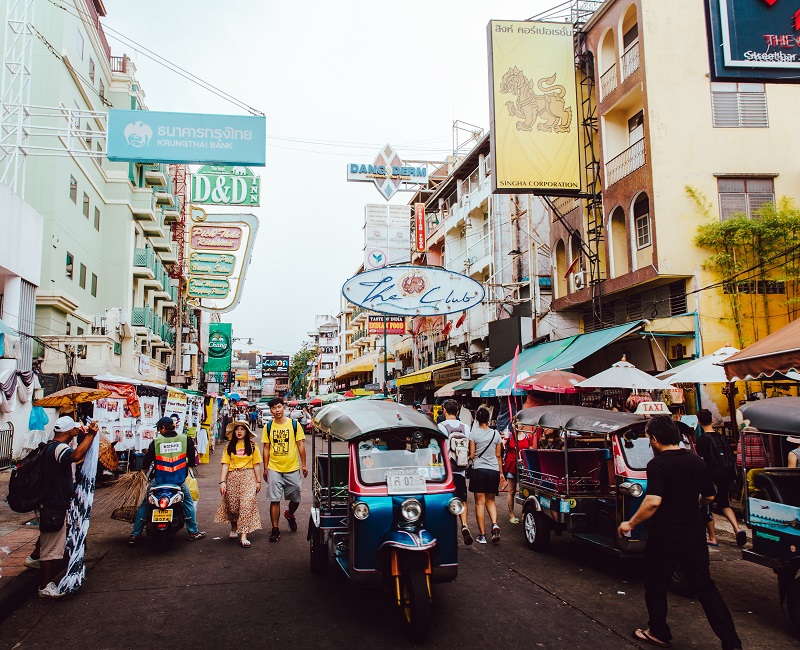
How do I get vaccinations for Thailand?
Anyone requiring injections for Thailand should visit their GP six to eight weeks before they leave. They should also check for any medical updates on the official government website .
Many travel vaccinations are free on the NHS , including those for tetanus, diphtheria, polio, typhoid, hepatitis A and cholera so be sure to take advantage of this and get your free travel jabs.
High street chains like Boots and Superdrug also offer vaccination services but the costs can vary greatly. The International Society of Travel Medicine has clinics in 90 countries and provides pre-travel immunisation and counseling.
It’s important to be aware that not having the required inoculations could invalidate a travel insurance policy
Stay #TravelAware
Thailand is one of the UK's favourite travel destinations but which of these items can you not take into the country?
Did you correctly guess which item isn't allowed into Thailand?
Want to learn about more local laws for any country across the world? Visit www.gov.uk/foreign-travel-advice to stay in the loop with travel advice.
Interested in travel insurance?
Other travel products.
Order foreign currency online or in selected branches. Pick up in any branch or get it delivered to your home.
One prepaid Mastercard™ that stores up to 22 currencies.
Get your passport application right the first time. We can even complete and submit it for you digitally.
This might interest you

If you're travelling to an EU country from the UK, make sure you take a Global ...

Learn about the different types of travel insurance available from Post Office, ...

Travel insurance for a holiday in the UK isn't something you must have, but it ...
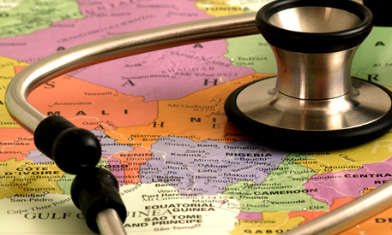
There’s no better feeling than planning an amazing trip to an exotic ...

It's a proud feeling when children turn eighteen and start holidaying on their ...

So, you’ve booked your flights, accommodation and activities. What next?

With festivals overseas becoming the new norm, festivalgoers need to do a bit ...

If you're travelling abroad as a family, it makes sense to take out insurance ...
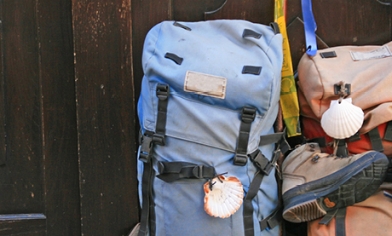
Going backpacking is one of life’s great adventures. But before you set off ...
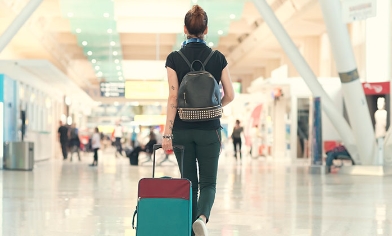
Do you need travel insurance for your trip? Is travel insurance worth it? And, ...

Fancy trekking in a remote Asian rainforest? A wild time in New York? Flying ...

The opportunities to combine business and leisure have never been greater. You ...
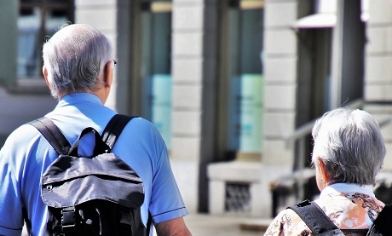
As you get older, being able to go where you want when you want is all part of ...

Before your little bundle of joy arrives, you may be considering taking a ...

Adventurous holidays can take many forms, from action-packed itineraries in ...
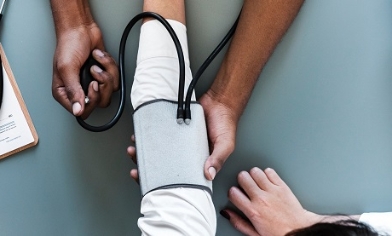
Travelling with high blood pressure is fine – but it’s important to make sure ...

You should be able to get the right cover to travel abroad if you’re diabetic, ...

Exploring the globe can be scary, but there’s so much to find at the edge of ...

If you're living with cancer but love to travel, can you get travel insurance ...
You are using an outdated browser. Upgrade your browser today or install Google Chrome Frame to better experience this site.
Thailand Healthy Travel Packing List
Pack items for your health and safety.
- You may not be able to purchase and pack all of these items, and some may not be relevant to you and your travel plans. Talk to your doctor about which items are most important for you.
- This list is general and may not include all the items you need. Check our Traveler Information Center for more information if you are a traveler with specific health needs, such as travelers who are pregnant, immune compromised, or traveling for a specific purpose like humanitarian aid work.
- Remember to pack extras of important health supplies in case of travel delays.
Prescription medicines
- Your prescriptions
- Travelers' diarrhea antibiotic
- Suture/syringe kit Kit is for use by local health care provider & requires a letter from your doctor on letterhead stationery
- Altitude sickness medicine
- Medicine to prevent malaria
Medical supplies
- Glasses Consider packing spare glasses in case yours are damaged
- Contact lenses Consider packing spare contacts in case yours are damaged
- Needles or syringes (for diabetes, for example) Requires a letter from your doctor on letterhead stationery
- Suture kit Kit is for use by local health care provider & requires a letter from your doctor on letterhead stationery
- Diabetes testing supplies
- Epinephrine auto-injectors (EpiPens)
- Medical alert bracelet or necklace
Over-the-counter medicines
- Antihistamine
- Motion sickness medicine
- Cough drops
- Cough suppression/expectorant
- Decongestant
- Medicine for pain and fever Examples: acetaminophen, aspirin, or ibuprofen
- Mild laxative
- Mild sedative or other sleep aid
- Saline nose spray
Supplies to prevent illness or injury
- Hand sanitizer or wipes Alcohol-based hand sanitizer containing at least 60% alcohol or antibacterial hand wipes
- Water purification tablets See CDC recommendations: Water Disinfection .
- Water purification tablets May be needed if camping or visiting remote areas
- Insect repellent Select an insect repellent based on CDC recommendations: Avoid Bug Bites
- Permethrin Permethrin is insect repellent for clothing. It may be needed if you spend a lot of time outdoors. Clothing can also be treated at home in advance.
- Bed net For protection against insect bites while sleeping
- Sunscreen (SPF 15 or greater) with UVA and UVB protection. See Sun Exposure .
- Sunglasses and hat Wear for additional sun protection. A wide brim hat is preferred.
- Personal safety equipment Examples: child safety seats, bicycle helmets
- Latex condoms
First-aid kit
- 1% hydrocortisone cream
- Antifungal ointments
- Antibacterial ointments
- Antiseptic wound cleanser
- Aloe gel For sunburns
- Insect bite treatment Anti-itch gel or cream
- Bandages Multiple sizes, gauze, and adhesive tape
- Moleskin or molefoam for blisters
- Elastic/compression bandage wrap For sprains and strains
- Disposable gloves
- Digital thermometer
- Scissors and safety pins
- Cotton swabs (Q-Tips)
- Oral rehydration salts
- Health insurance documents Health insurance card (your regular plan and/or supplemental travel health insurance plan) and copies of claim forms
- Proof of yellow fever vaccination If required for your trip, take your completed International Certificate of Vaccination or Prophylaxis card or medical waiver
- Copies of all prescriptions Make sure prescriptions include generic names. Bring prescriptions for medicines, eye glasses/contacts, and other medical supplies.
- Family member or close contact remaining in the United States
- Health care provider(s) at home
- Lodging at your destination
- Hospitals or clinics (including emergency services) in your destination
- US embassy or consulate in the destination country or countries
Other Destinations
If you need help finding travel information:
Message & data rates may apply. CDC Privacy Policy
File Formats Help:
- Adobe PDF file
- Microsoft PowerPoint file
- Microsoft Word file
- Microsoft Excel file
- Audio/Video file
- Apple Quicktime file
- RealPlayer file
- Zip Archive file
Cookies on GOV.UK
We use some essential cookies to make this website work.
We’d like to set additional cookies to understand how you use GOV.UK, remember your settings and improve government services.
We also use cookies set by other sites to help us deliver content from their services.
You have accepted additional cookies. You can change your cookie settings at any time.
You have rejected additional cookies. You can change your cookie settings at any time.
Entry requirements
This information is for people travelling on a full ‘British citizen’ passport from the UK. It is based on the UK government’s understanding of the current rules for the most common types of travel.
The authorities in Thailand set and enforce entry rules. If you’re not sure how these requirements apply to you, contact the Thai Embassy in the UK .
COVID-19 rules
There are no COVID-19 testing or vaccination requirements for travellers entering Thailand.
Passport validity requirements
To enter Thailand, your passport must have an ‘expiry date’ at least 6 months after the date you arrive and have at least 1 blank page.
Check with your travel provider that your passport and other travel documents meet requirements. Renew your passport if you need to.
You will be denied entry if you do not have a valid travel document or try to use a passport that has been reported lost or stolen.
Dual nationals
If you’re a dual national, it is best to leave Thailand on the same passport you used to enter – this will avoid problems at immigration.
Visa requirements
You can visit Thailand for a period of 60 days for the purpose of tourism, business engagements, and urgent or ad-hoc work. This visa category can be extended for another period not exceeding 30 days.
You can also apply in advance for a multiple-entry visa for up to 60 days .
For work, study or other reasons, you need a visa before you travel .
Overstaying your visa
If you overstay the period of your visa, you will get a fine of 500 Thai baht a day up to a maximum of 20,000 baht. You risk being:
- held in detention
- deported at your own expense
- banned from re-entering Thailand for up to 10 years
Conditions in detention centres can be harsh.
Vaccine requirements
To enter Thailand, you must have a certificate to prove you’ve had a yellow fever vaccination if you’re coming from a country listed as a transmission risk .
For full details about medical entry requirements and recommended vaccinations, see TravelHealthPro’s Thailand guide .
Customs rules
There are strict rules about goods you can take into or out of Thailand . You must declare anything that may be prohibited or subject to tax or duty.
Taking cigarettes into Thailand
It is illegal to take more than 200 cigarettes per person into Thailand. This is enforced at customs on arrival. If you go over the limit, you could be fined 10 times the value. Your cigarettes will likely be confiscated.
Related content
Is this page useful.
- Yes this page is useful
- No this page is not useful
Help us improve GOV.UK
Don’t include personal or financial information like your National Insurance number or credit card details.
To help us improve GOV.UK, we’d like to know more about your visit today. Please fill in this survey (opens in a new tab) .
NEWS... BUT NOT AS YOU KNOW IT
Mpox outbreak 2024: Five countries tighten border screening as new variant spreads

Share this with

Several Asian nations are toughening their border controls in response to a new deadlier variant of the mpox virus.
Two cases of the strain, known as Clade 1b, were detected in Sweden and Thailand respectively over the past ten days.
They are the first two confirmed cases outside of Africa, where an outbreak which started in the Democratic Republic of Congo last year has spread to neighbouring countries, claiming hundreds of lives.
New health measures have been introduced or are set to be introduced in Thailand , Singapore , South Korea , Indonesia , the Philippines and Malaysia .
Most involve checks on arrivals, such as temperature screening, while some nations are preparing to quarantine people who show symptoms .
- 4d ago Thailand confirms case of new dangerous strain of mpox
- 4d ago Are travel restrictions in place amid mpox outbreak?
- 5d ago Border controls ramped up in Asia amid concerns about new mpox variant
- 5d ago Minister visits Africa as UK steps up support amid mpox outbreak
This live blog is now closed
This live blog is now closed. For future coverage on the outbreak, check Metro’s mpox page.
Here were some of the top stories.
Thailand confirms case of new dangerous strain of mpox
Thailand has confirmed that a case of mpox in the country is the new clade 1 variant.
This variant has also been confirmed in various countries in Africa and also Sweden.
The infected 66-year-old European man arrived in Bangkok from an unnamed African country on August 14.
Are travel restrictions in place amid mpox outbreak?
The spread of the new clade 1 variant has caused concern among some countries, particularly in Asia where measures have been ramped up.
While there are no travel restrictions currently in place, governments in different countries are taking measures to protect travellers.
In India, the government has directed airports, ports, and border authorities to stay vigilant while some hospitals have facilities for isolating suspected mpox cases.
Border controls ramped up in Asia amid concerns about new mpox variant
Border controls across various Asian countries have been ramped up after a suspected case of the clade 1 variant was found in Thailand.
South Korea is now monitoring passengers from high-risk countries, which includes Ethiopia, Kenya and the Democratic Republic of Congo.
Meanwhile Taiwan has started to stockpile vaccines and has launched immunisation programmes for high-risk groups.
WHO partners allowed to buy vaccines before final approval
The World Health Organisation (WHO) has relaxed its rules around vaccine access for partner organisations to speed up help for African nations struggling with mpox.
International organisations are usually only allowed to buy jabs after they are formally approved by the WHO.
But the health agency is allowing bodies such as UNICEF and Gavi to start stockpiling them before this happens.
The vaccines will still need approval before they can be used, and the WHO is expected to grant an emergency licence in a matter of weeks.
It’s hoped the move will speed up talks to get them rolled out afterwards.
Two vaccines in particular, made by a Danish firm and a Japanese firm respectively, have already been approved by national regulators and millions have been used against mpox since 2022.
The WHO licence will allow international groups to procure vaccines instead of national governments alone.
WHO partners allowed to buy vaccines before UN approval
Is mpox in the uk and how worried should we be.
The current alarm around the mpox virus is driven by the emergence of a new variant believed to be more deadly.
A total of 286 cases have been recorded in the UK over the past year-and-a-half, though there were no fatalities.
Some 450 people have died in an outbreak in Africa centred in the Democratic Republic of Congo, however.
These cases have been liked to a strain known as Clade 1b, which is not yet well understood by scientists.
The first two cases of this strain outside of Africa were detected in recent days, in people who travelled from Africa to Sweden and Thailand respectively.
No cases of it have been detected in the UK, though there are no restrictions on people entering the country from the virus hotspots.
The World Health Organisation has reassured people that mpox is ‘not the new Covid’ as authorities know clearly how to control its spread.
Experts say the virus has mostly spread from close contact between people in relatively unsanitary conditions.
Isle of Man ‘preparing for mpox outbreak’
Public health officials on the Isle of Man say they are ‘planning and preparing’ for a local outbreak of the mpox virus.
They said the risk to residents is currently ‘low’ but urged them to nonetheless stay on the lookout for symptoms.
Countries around the world are on high alert after cases of a deadlier new strain of the virus were detected outside of Africa for the first time.
One of the cases was confirmed in Sweden last week and another in Thailand this week. Both had travelled from Africa, where the outbreak is centred.
Top EU official demands ‘coordinated’ response to mpox spread
The EU’s health chief has called for more vaccine donations as part of a ‘coordinated and sustained’ response to the spread of the mpox virus.
Stella Kyriakides, the European Commissioner for Health and Food Safety, wrote a public letter pressuring member states who haven’t yet donated vaccine doses to start doing so.
She said 215,000 doses have been donated to the Africa Centres for Disease Control with the help of the EU’s anti-pandemic taskforce.
Her letter mentions a ‘deadline’ at the end of August, though it’s not clear if member states will face any sanctions for failing to donate by this time.
I have written to ðªðº Health Ministers regarding plans to donate #mpox vaccines & therapeutics. â¡ï¸ð solidarity is key to facing global health threats. We count on Member States to support our African partners in managing the outbreak. @EU_Commission stands ready to coordinate. pic.twitter.com/5pfoYEf5kS — Stella Kyriakides (@SKyriakidesEU) August 23, 2024
Entry restrictions tightened in several Asian countries
Five Asian nations are toughening their border controls in response to a new deadlier variant of the mpox virus.
New health measures have been introduced or are set to be introduced in Thailand, Singapore, South Korea, Indonesia, the Philippines and Malaysia.
For example, anyone arriving in Thailand from countries with ongoing outbreaks will be thoroughly screened and must register with the government.
Thailand and South Korea have both put in place measures allowing authorities to quarantine anyone who displays symptoms.
UK STEPS UP SUPPORT TO TACKLE MPOX OUTBREAK ON VISIT TO THE DEMOCRATIC REPUBLIC
Africa Minister Lord Collins has announced new funding to tackle the outbreak of mpox cases in the DRC.
During a visit to the Institute National de Recherche Biomedical (National Institute of Biomedical Research) in the DRC, Lord Collins announced £3.1m of UK funding for a new partnership with UNICEF that will benefit over 4.4 million people in affected communities as well as help preventing the further spread of mpox to neighbouring countries.
This funding announcement follows a declaration from the World Health Organisation (WHO) that the upsurge of mpox in the DRC and a growing number of countries in Africa constitutes a public health emergency of international concern (PHEIC).
Shares in mpox vaccine maker soar amid outbreak

As nations mobilise to combat the escalating mpox outbreak, shares of Danish biotech Bavarian Nordic have surged.
This follows strong earnings and a large order of the mpox vaccine in which the company announced a 440,000 dose contract to an undisclosed European country.
It is the only shot authorised to be used against the virus in the US and EU.
It is sold under the brand names of names Jynneos, Imvamune and Imvanex – and pulled in around 680 million Danish kroner (£77,290,840) for the year.
During early trading in Copenhagen this morning stocks jumped by more than 12%.

He has had minimal contact with others since he arrived, according to health authorities.
The infection in Thailand is the first confirmed case of Clade 1 in Asia and the second outside of Africa.
Authorities tracked down around 43 patients who were sitting in the rows near the unidentified man, and those who met him after he landed.
These people will be monitored for 21 days.
The country now also requires people travelling from 42 ‘risk countries’ to test on arrival.

Indonesia has introduced health screening for foreign travellers who must complete forms disclosing medical history and recent travel activities.
Meanwhile in China there is enhanced airport surveillance to isolate and test affected travellers and those with symptoms must report their condition on entry.
Airport screening has also been introduced in South Africa and Kenya has introduced testing procedures for travellers entering the country to identify mpox cases and prevent their spread.
Nigeria is implementing a declaration process for travellers heading to specific regions in Africa, while Pakistan has prepared hospital wards for a potential mpox outbreak following the detection of a case there.
Hospital wards in Pakistan prepared for mpox outbreak

And Pakistan has introduced screening at airports following the discovery of a case in the country.
Minister visits Africa as UK steps up support amid mpox outbreak
The government has stepped up its support following the outbreak of mpox as Africa Minister Lord Collins visits the Democratic Republic of Congo (DRC).
He announced £3.1m of UK funding for a new partnership with Unicef.
The funding announcement follows a declaration from the World Health Organisation (WHO) last week that mpox is now a global health emergency.
Lord Collins said: ‘Working together, with our partners and using the expertise and dedication of Congolese scientists, including those at the world-leading research centre I have visited in DRC, our support will play an important role in ensuring global health security for all.
‘By protecting the health and well-being of communities across DRC, and by helping contain these outbreaks, we reduce the risk of diseases spreading further afield. This will ultimately benefit us all.’
Argentina health officials rule out suspected case of mpox on grains ship
Health officials in Argentina said on Wednesday that a test to determine if a crew member on a quarantined grains cargo ship was infected with the mpox virus had come back negative, according to a statement from the health ministry.
The crew member, an Indian national who had developed cyst-like skin lesions on his chest and face, was working on the ship that was traveling along a key commodities route near the inland river port city of Rosario.
Authorities had quarantined the ship in the Parana River as a precaution.
In its statement, the health ministry said the individual tested negative for mpox, but positive for chicken pox.
Bavarian Nordic gets 440,000 dose contract to supply smallpox and mpox vaccines
Danish biotech firm Bavarian Nordic said on Wednesday that it has received a contract to supply 440,000 doses of its smallpox and mpox vaccines to an undisclosed European country.
The company said the latest order was anticipated as part of its outlook for the year, and has no impact on the remaining capacity for its smallpox and mpox vaccine.
Last week, the World Health Organization (WHO) declared that an outbreak of mpox, a viral infection that spreads through close contact, represents a global health emergency for the second time in two years.
‘Bavarian Nordic can still supply up to 10 million doses of our smallpox and mpox vaccine by the end of next year, with 2 million doses of this capacity available during the remaining part of this year, said CEO Paul Chaplin.
The company could ramp up production of its mpox vaccine even before having orders lined up, based on the outcome of talks this week with the WHO, Chaplin told Reuters on Tuesday.
UN migration agency appeals for $18.5 million in for mpox outbreak
The United Nation’s International Organisation for Migration (IOM) appealed on Wednesday for $18.5 million in assistance to provide health care services to people impacted by the mpox outbreak in East and Southern Africa, according to a statement.
‘The spread of mpox across East, Horn, and Southern Africa is a grave concern, especially for the vulnerable migrant, highly mobile populations and displaced communities often overlooked in such crises,’ said IOM Director General Amy Pope.
Is there an mpox vaccine?
Yes there is a vaccine for mpox.
The UN health agency recommends several vaccines for use against mpox.
At present, WHO recommends use of MVA-BN or LC16 vaccines, or the ACAM2000 vaccine when the others are not available.
Only people who are at risk of exposure to mpox should be considered for vaccination. Travellers who may be at risk based on an individual risk assessment with their healthcare provider, may wish to consider vaccination.
Mass vaccination which rolled out during the coronavirus pandemic, is not currently recommended.
Research has led to the development of newer and safer vaccines for the now eradicated disease smallpox. Some of these vaccines have been approved in various countries for use against mpox.
Health chiefs in Guernsey ‘closely monitoring’ mpox situation

Health chiefs in Guernsey have confirmed they are ‘closely monitoring’ the mpox outbreak after a case of the clade 1 variant was found in Sweden last week.
Director of Public Health Dr Nicola Brink said a ‘multi-disciplinary team’ would meet to discuss the outbreak this week.
She said: ‘We are monitoring the global situation closely and are keeping it under review.’
It comes after the World Health Organisation (WHO) said last week that mpox is now a global health emergency.
Minister visits Africa as UK steps up support to tackle mpox outbreak
MORE : Microplastics found in the brain could be linked to rise in Alzheimer’s cases
MORE : Huge 21-mile queue on major UK motorway causing hour-long delays
MORE : Hospital ‘told family their daughter was discharged – but her was body in morgue’
Sign Up for News Updates
Get your need-to-know latest news, feel-good stories, analysis and more.
Privacy Policy

Get us in your feed

IMAGES
COMMENTS
All international travelers should be fully vaccinated against measles with the measles-mumps-rubella (MMR) vaccine, including an early dose for infants 6-11 months, according to CDC's measles vaccination recommendations for international travel. Dogs infected with rabies are sometimes found in Thailand.
Fax: + (66) (2) 205-4103, 02-205-4103 (within Thailand) If you have any questions about traveling to Thailand or are wondering what shots you may need for your trip, schedule an appointment with your local Passport Health travel medicine clinic. Call us at. Customer Reviews. Passport Health - Travel Vaccines for Thailand.
The COVID-19 pandemic wreaked havoc on the world. International travel ground to a halt and countries were forced to implement strict processes and entry requirements to halt the spread of the virus. Thailand introduced quarantine measures and Thailand Pass. Thailand Pass required visitors to register details like vaccination status, flight, and hotel bookings, and confirmation
All travelers going to Thailand should be up to date with their COVID-19 vaccines. Tuberculosis. Thailand has a high burden of tuberculosis (TB). Immunocompromised travelers who visit Thailand for extended visits could be at increased risk for TB. Travelers should avoid people known to have active TB, and refrain from consuming unpasteurized ...
At least 8 weeks before your trip: check the latest information on vaccinations and health risks in TravelHealthPro's Thailand guide. see where to get vaccines and whether you have to pay on the ...
Call us in Washington, D.C. at 1-888-407-4747 (toll-free in the United States and Canada) or 1-202-501-4444 (from all other countries) from 8:00 a.m. to 8:00 p.m., Eastern Standard Time, Monday through Friday (except U.S. federal holidays). See the State Department's travel website for the Worldwide Caution and Travel Advisories.
• Get a single-dose vaccine no less than 14 days before the travel date to Thailand • In case of mix-and-match vaccines, get a second dose of a different vaccine within the recommended interval of the first vaccine no less than 14 days before the travel date to Thailand. Guidelines to be considered as fully vaccinated when having been ...
International travellers, including returning Thais and foreign residents, who are above 18 years of age should get fully vaccinated for Covid-19 with a vaccine approved by Thailand's Ministry of Public Health (MoPH) or the World Health Organisation (WHO) no less than 14 days before their travel date. Travellers 12-17 years of age, travelling ...
4th Floor, R Building. (+66) 2310 3000. (+66) 2310 3256. (+66) 2755 1256. 1719 (Local Calls Only) [email protected]. Vaccines protect travellers from serious diseases that might potentially occur during the trips. Depending on traveling destinations, travellers may come into contact with certain diseases.
Your passport must be valid at least 6 months upon entry into Thailand. Passport for official travel. Different entry rules may apply. Official travel. ... Pre-travel vaccines and medications. You may be at risk for preventable diseases while travelling in this destination. Talk to a travel health professional about which medications or ...
Thailand is free from Yellow Fever; however, a vaccination certificate may be necessary if arriving from a country where Yellow Fever is prevalent. Discuss travel routes with one of our doctors to determine if a Yellow Fever vaccine is needed, only if you come from a yellow fever country (commonly parts of Africa or South America).
Yes, some vaccines are recommended or required for Thailand. The. See the bullets below to learn more about some of these key immunizations: Shot lasts 2 years. Oral vaccine lasts 5 years, must be able to swallow pills. Oral doses must be kept in refrigerator. Cholera is rare, but present in Thailand.
Vaccinations for Thailand. For most standard tourists the usual recommended vaccinations for Thailand include cover against the childhood diseases (Tetanus and Diphtheria, Measles, Mumps and Rubella) as well as cover against the food borne diseases of Typhoid and Hepatitis A. For those trekking in the Thai countryside or staying for longer ...
Thailand Travel Requirements & Vaccinations . Thailand is a country located in Southeast Asia on the Indochinese peninsula. Officially known as the Kingdom of Thailand, it was formerly known as Siam. Thai is the official language of Thailand with English being spoken in most of the larger cities and tourist destinations. Thailand is home to ...
Anyone requiring injections for Thailand should visit their GP six to eight weeks before they leave. They should also check for any medical updates on the official government website. Many travel vaccinations are free on the NHS, including those for tetanus, diphtheria, polio, typhoid, hepatitis A and cholera so be sure to take advantage of ...
Check our Traveler Information Center for more information if you are a traveler with specific health needs, such as travelers who are pregnant, immune compromised, or traveling for a specific purpose like humanitarian aid work. Remember to pack extras of important health supplies in case of travel delays. Prescription medicines. Your prescriptions
Vaccine Recommendations. Details of vaccination recommendations and requirements are provided below. ... There is a very low risk of malaria in the remaining areas of Thailand including Kanchanaburi (Kwai Bridge): ... Where travel is essential, awareness, rigorous bite avoidance and antimalarials should be advised even for the low risk areas. ...
FCDO travel advice for Thailand. Includes safety and security, insurance, entry requirements and legal differences. ... There are no COVID-19 testing or vaccination requirements for travellers ...
The latest update. The policy took effect for all flights arriving on Monday (January 9), 1:00 am onwards. Well, in just over 12 hours, that policy changed again: no vaccinations required. Everyone is free to enter. "Showing proof of vaccination would be cumbersome and inconvenient, and so the group's decision is that it is unnecessary ...
Updated: 18 July 2024. Latest update:We've reviewed our advice and continue to advise exercise a high degree of caution in Thailand overall. If you're a tourist, you can get a visa exemption for up to 60 days on arrival. If your travel is not for tourism, contact the nearest Royal Thai Embassy or Consulate-General to apply for the appropriate ...
Malaria. Malaria is high risk for those rural travellers along Thailand's borders with Cambodia, Laos and Myanmar. There is a low risk in the rest of the country, while no risk in Bangkok, Chiang Mai, Chiang Rai, Koh Phangan, Koh Samui and Pattaya - although bite avoidance measures are recommended. Malaria is a blood infection which can be ...
Latest news on the mpox outbreak after Thailand suspects new case. Follow for updates on symptoms, transmission, vaccine and cases today.
Both clade Ia and clade Ib are circulating in DRC and have been detected in neighboring countries and in Sweden and Thailand (one case each associated with travel to Africa with known clade I cases). ... testing, and treatment of cases, vaccination will be a critical element of the response to this outbreak. Successful vaccination campaigns ...
Thailand has reported a suspected first case of a new, more dangerous strain of mpox in a European traveler. The patient, a 66-year-old man who arrived from an unnamed African country on 14 August, is believed to be infected by the Clade 1 variant, which is deadlier and more transmissible and triggered a warning from the world health authority ...
Travel Advice for Thailand | Thailand Vaccinations - Boots. This file is used in Dojo's back/fwd button management. Never be without your favourite Boots products with our international delivery options. Boots has products available in other retail outlets in a number of countries, select from the country-specific sites below to find out more: